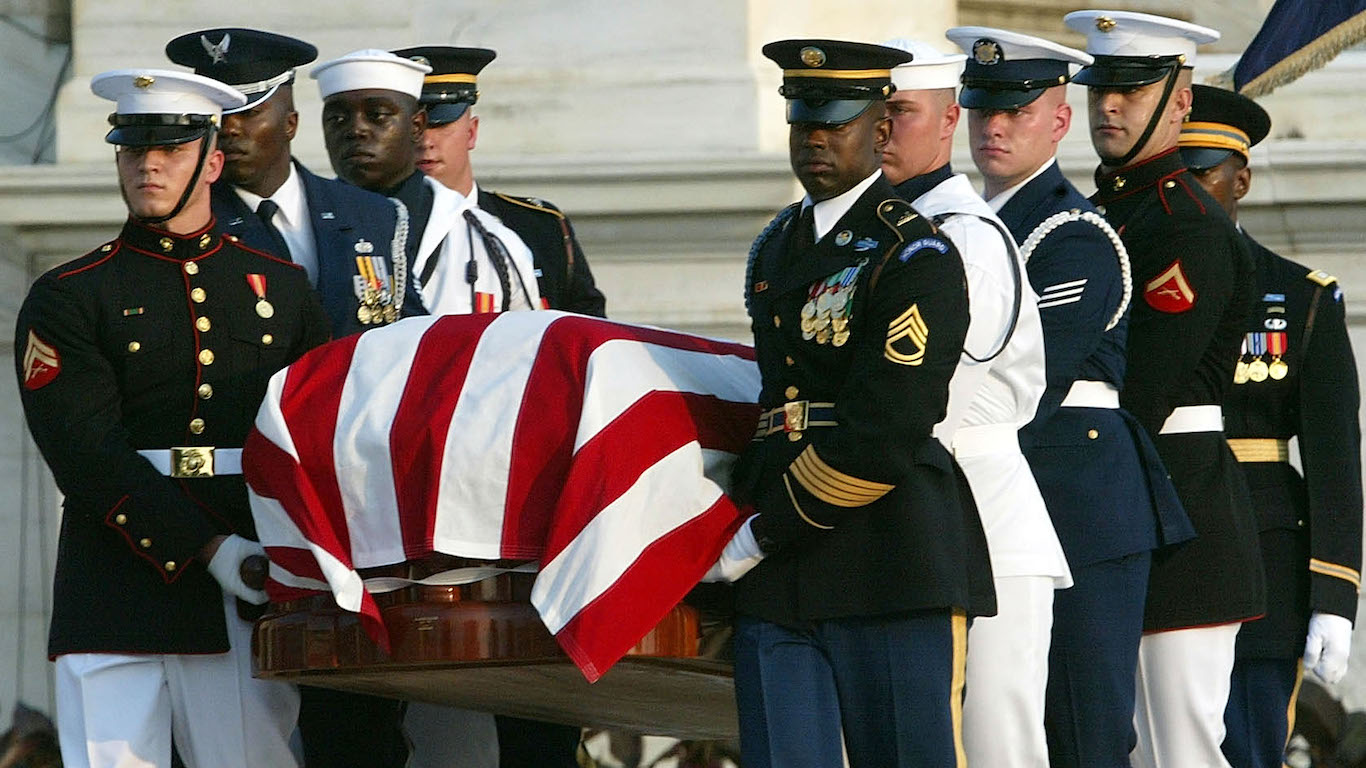
“If they do kill me,” Abraham Lincoln once said, “I shall never die another death.” They did kill him, of course, and if he ever died a second time, history does not record it.
Lincoln, as we all know, was assassinated while in office. So were three other presidents — James A. Garfield, William McKinley, and John. F. Kennedy.
Unsuccessful attempts were also made on the lives of Andrew Jackson, Theodore Roosevelt, Franklin D. Roosevelt, Harry S. Truman, Richard Nixon, Gerald Ford, Jimmy Carter, Ronald Reagan, George H.W. Bush, Bill Clinton, George W. Bush, and Barack Obama. Clearly running the country is a dangerous line of work. (This is how historians have ranked every U.S. president.)
The demands of the job can be dangerous to presidential health, too. Several presidents, including Chester A. Arthur and Woodrow Wilson, decided against running for an additional term because of poor health.
And at least 18 presidents over the years have died of heart failure or stroke, ailments that could perhaps be linked at least in part to the stress of the office. The youngest president to die in office, not counting several victims of assassination, was James K. Polk, who succumbed to cholera at the age of 53. (Can you solve these real-life “Jeopardy” clues about U.S. presidents?)
Click here to see how 39 U.S. presidents died
On the other hand, six presidents obviously did something right, existing into their tenth decades: John Adams and Herbert Hoover, who reached 90; Ronald Reagan and Gerald Ford, who died at 93; George H.W. Bush, who lasted to the age of 94 — and Jimmy Carter, who is still alive at the age of 98.
24/7 Tempo has assembled a list of our 39 deceased presidents, with notes on what killed them and, where recorded, what they said before they died.
To identify how 39 presidents died, 24/7 Tempo compiled research from various biographical resources, as well as from obituaries appearing in the New York Times and the Wall Street Journal. Information on the last words spoken by the presidents was drawn from the same sources, and from the Free Library of Philadelphia.
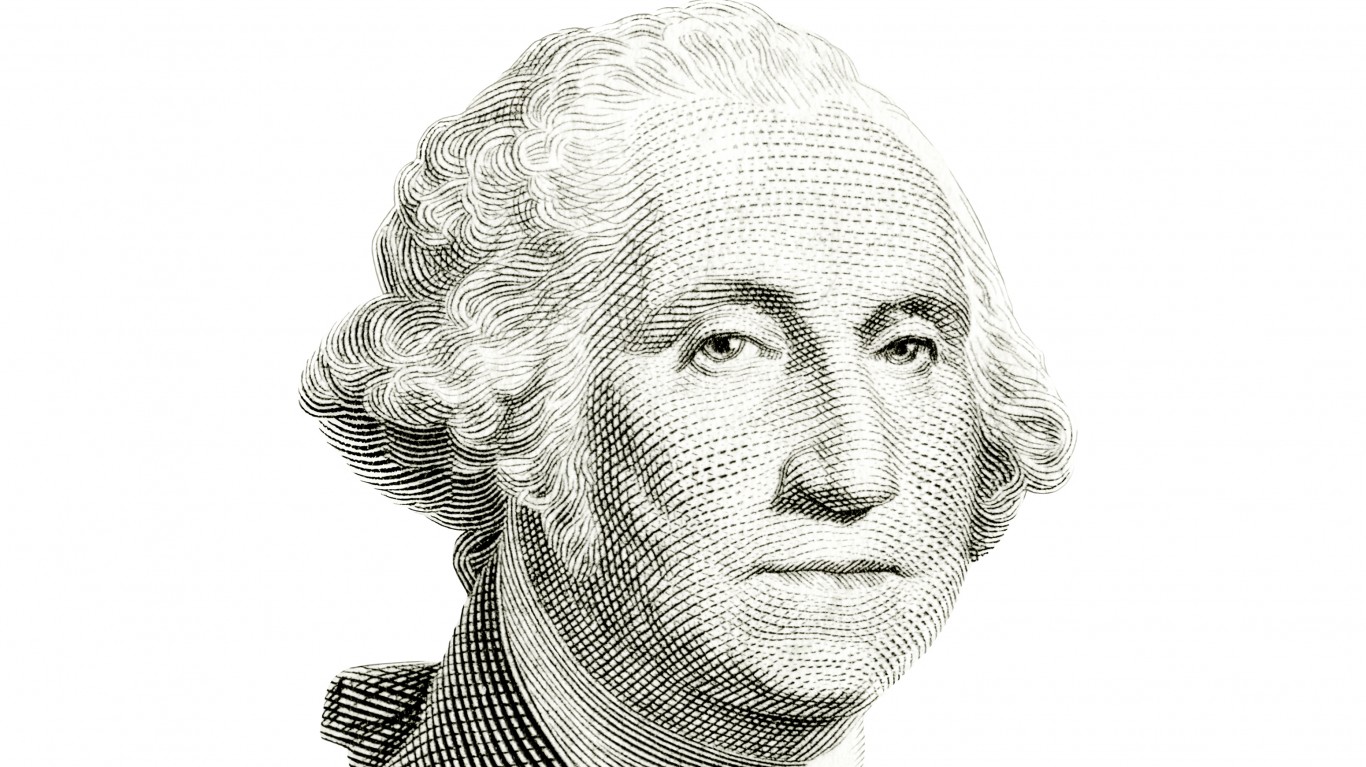
George Washington
> When he died: Dec. 14, 1799
> Age: 67
> Cause of death: Acute epiglottitis
A severe infection of the epiglottis, the flap covering the trachea, claimed the life of our first president. His last words were “‘Tis well.”
[in-text-ad]
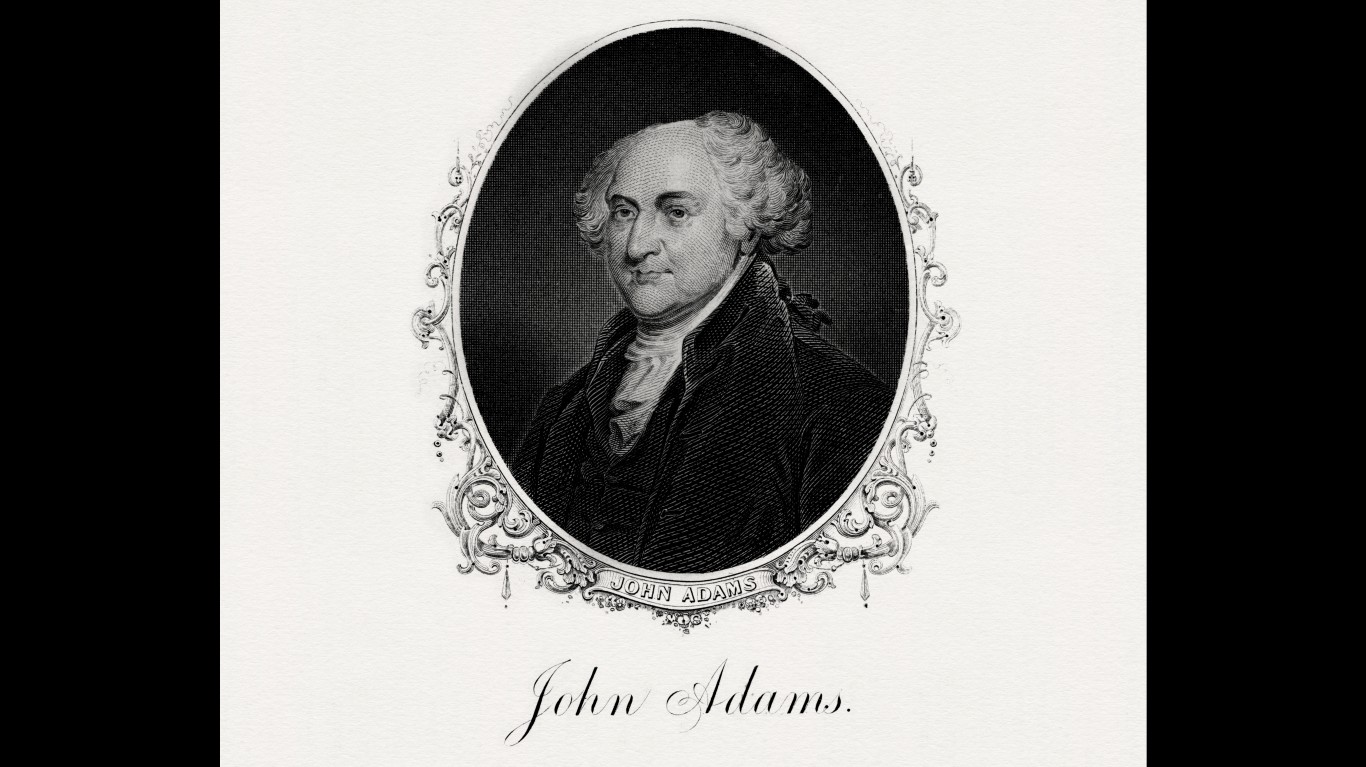
John Adams
> When he died: July 4, 1826
> Age: 90
> Cause of death: Heart failure
When Adams had a fatal heart attack at the age of 90, he was the longest-lived U.S. president (Ronald Reagan later overtook him, dying at 93). Last words: “Thomas Jefferson survives” — though ironically, Jefferson had died a few hours earlier the same day. (The coincidence that both Founding Fathers died on Independence Day has often been noted.)
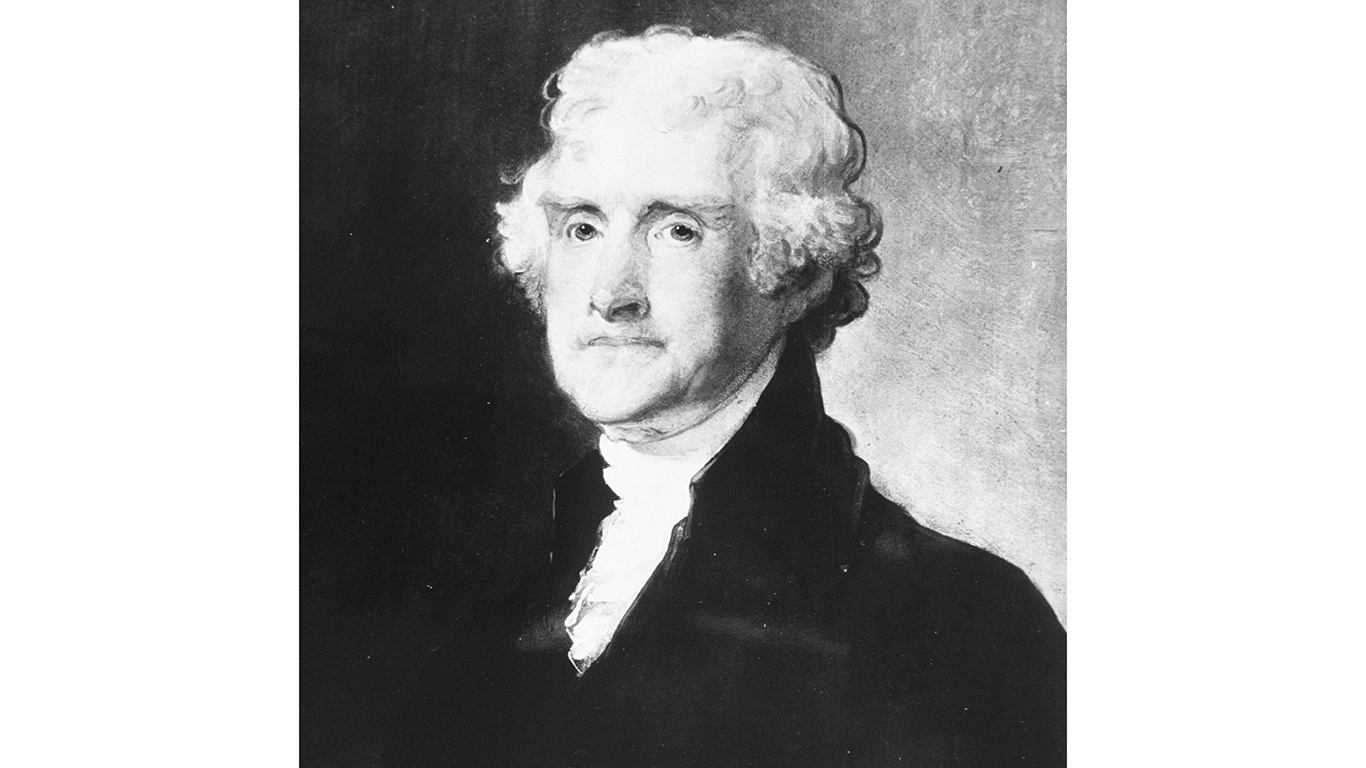
Thomas Jefferson
> When he died: July 4, 1826
> Age: 83
> Cause of death: Toxemia, uremia, and pneumonia
Jefferson was beset with numerous ailments, including rheumatism, a urinary tract infection, and intestinal problems. Blood poisoning and pneumonia hastened his demise. It has been reported that his last words, in refusing a painkiller, were “No, doctor, nothing more.”

James Monroe
> When he died: July 4, 1831
> Age: 73
> Cause of death: Tuberculosis
Heart problems had weakened Monroe when he contracted tuberculosis, listed as his cause of death. The final words out of his mouth, in reference to his good friend and successor James Madison “I regret that I should leave this world without again beholding him.”
[in-text-ad-2]
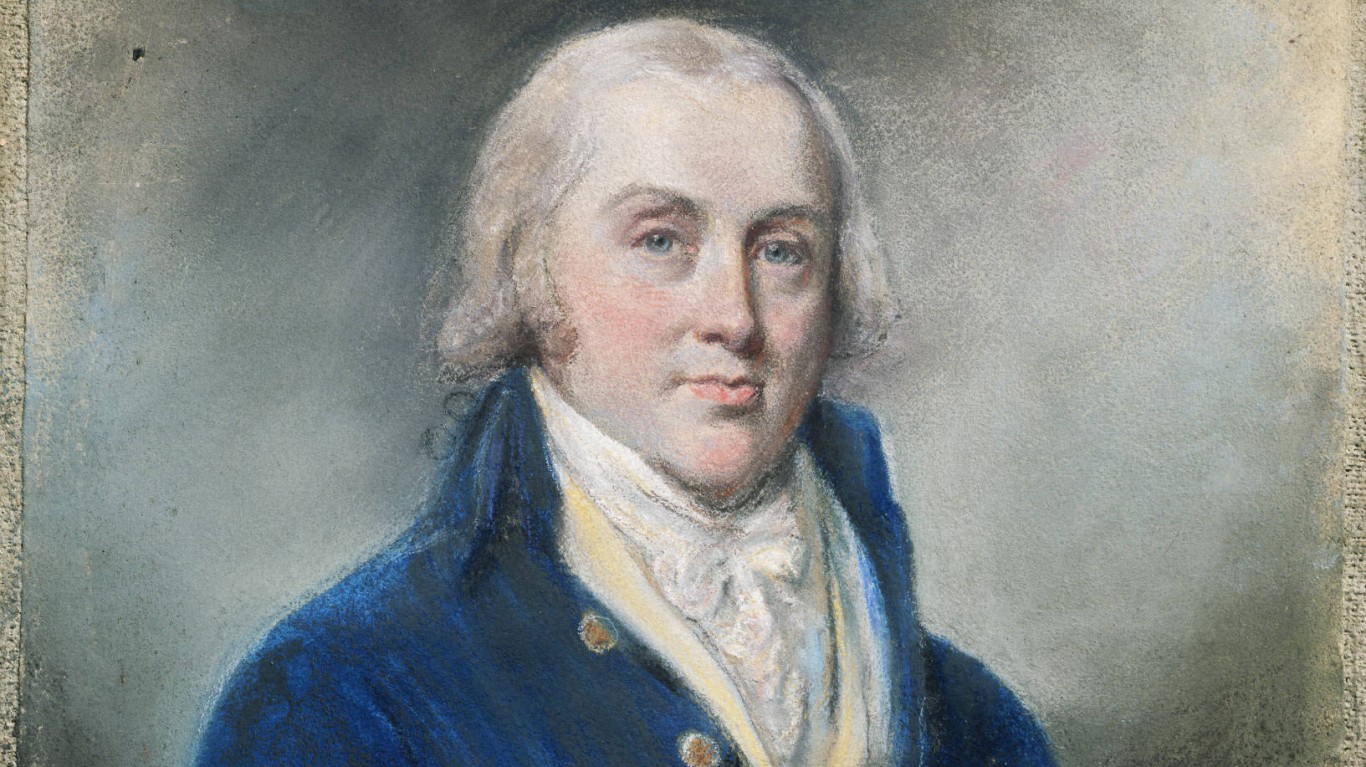
James Madison
> When he died: June 28, 1836
> Age: 85
> Cause of death: Heart failure
Known as a hypochondriac and suffering intermittently from depression, Madison succumbed to congestive heart failure. At the time of his demise, he was the last surviving signer of the Constitution. One of his nieces, sitting by his sickbed, asked him if he was feeling all right. “Nothing more than a change of mind, my dear,” he replied, and then died.
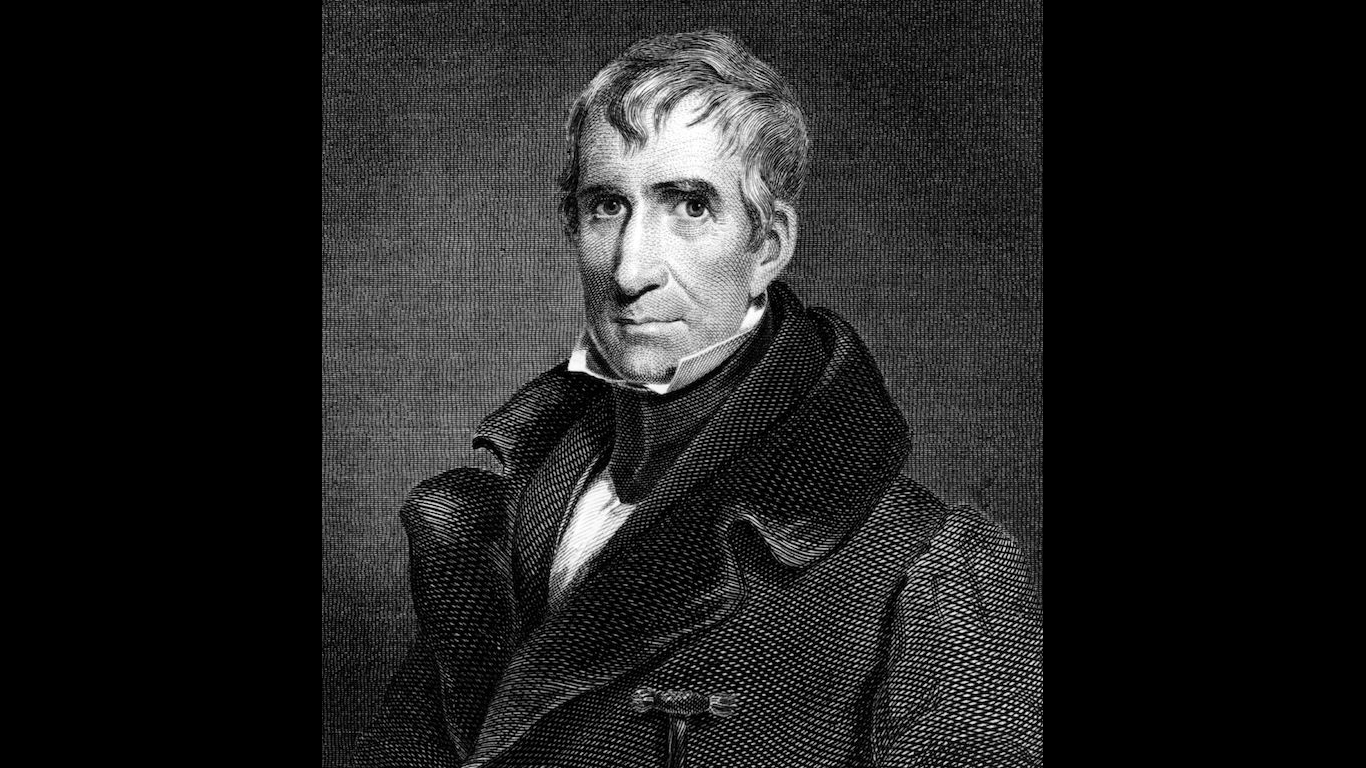
William Henry Harrison
> When he died: April 4, 1841
> Age: 68
> Cause of death: Typhoid
The first president to die in office — after serving only one month of his term — Harrison contracted typhoid, perhaps from contaminated water at the White House. Just before he slipped away, he said “Sir, I wish you to understand the true principles of the government. I wish them carried out. I ask nothing more.” Though he said this to his doctor, the presumption is that he meant them for his vice president, John Tyler, who would succeed him.
[in-text-ad]
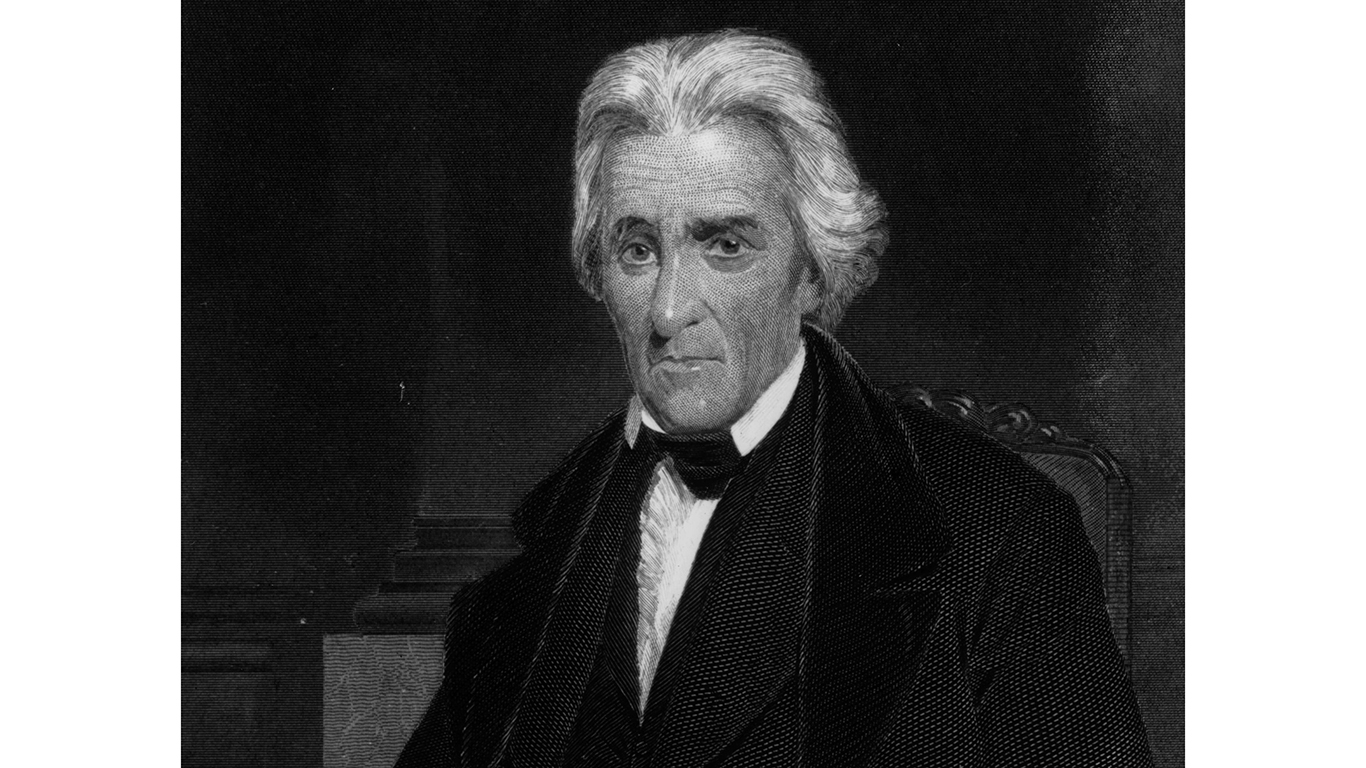
Andrew Jackson
> When he died: June 8, 1845
> Age: 78
> Cause of death: Heart failure
Suffering badly from edema (swelling caused by fluid retention in the tissues), known at the time as dropsy, and from a weak heart, Jackson died soon after saying to his grieving family “”What is the matter with my dear children? Have I alarmed you? Oh, do not cry. Be good children and we will all meet in heaven.”

John Quincy Adams
> When he died: Feb. 23, 1848
> Age: 80
> Cause of death: Cerebral hemorrhage
Adams suffered his first stroke in 1846, but recovered. Two years later, during a session of the House of Representatives, he registered a passionate “No!” vote on a measure to honor veterans of the Mexican-American War, and promptly collapsed with a massive cerebral hemorrhage. He died two days later, with the words “This is the last of earth. I am content.” One of those at his bedside was a young House member from Illinois named Abraham Lincoln.
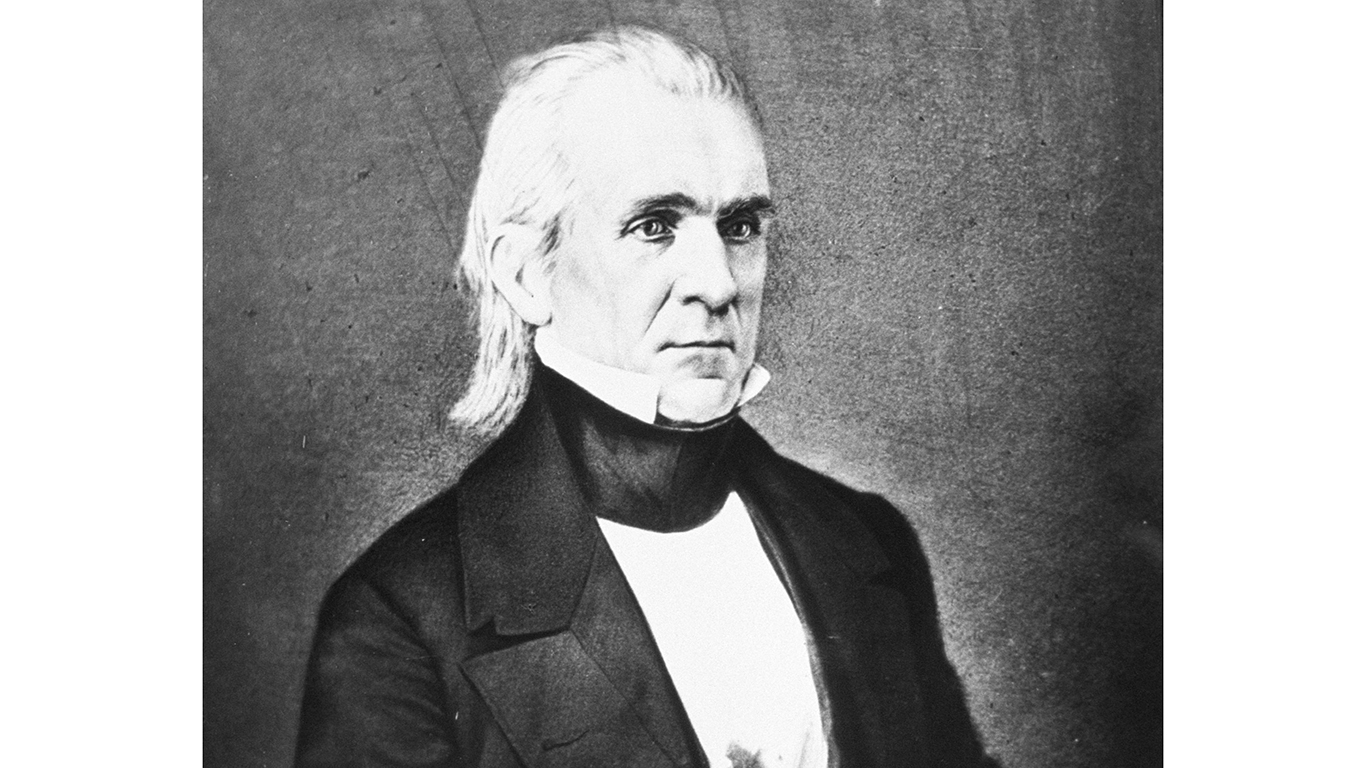
James K. Polk
> When he died: June 15, 1849
> Age: 53
> Cause of death: Cholera
After a passenger on a riverboat he’d been on died of cholera, Polk became concerned that the cold symptoms he was suffering might be that disease. His doctor assured him that it wasn’t, but after a brief revival, he fell ill again. He died at his home in Nashville, leaving his wife with the words “I love you, Sarah. For all eternity, I love you.”
[in-text-ad-2]
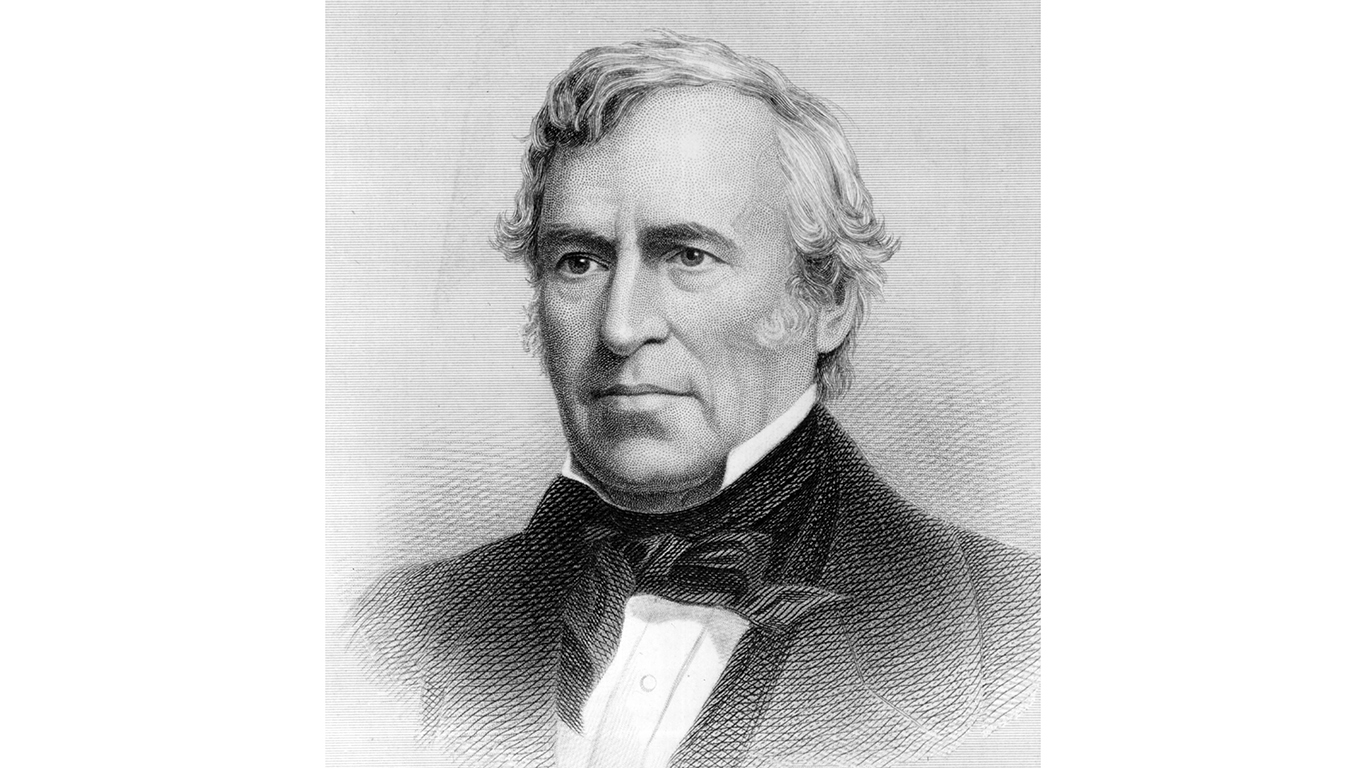
Zachary Taylor
> When he died: July 9, 1850
> Age: 65
> Cause of death: Gastroenteritis
Taylor became ill after eating raw fruit and large quantities of ice water at a fund-raising event. The exact nature of the ailment that claimed his life isn’t known, though it seems to have been intestinal in nature. Conspiracy theorists in his own era and into the present day have suggested that he might have been poisoned by pro-slavery factions, though this has not been proven. Before dying, he said to his wife “”I have always done my duty, I am ready to die. My only regret is for the friends I leave behind me.”
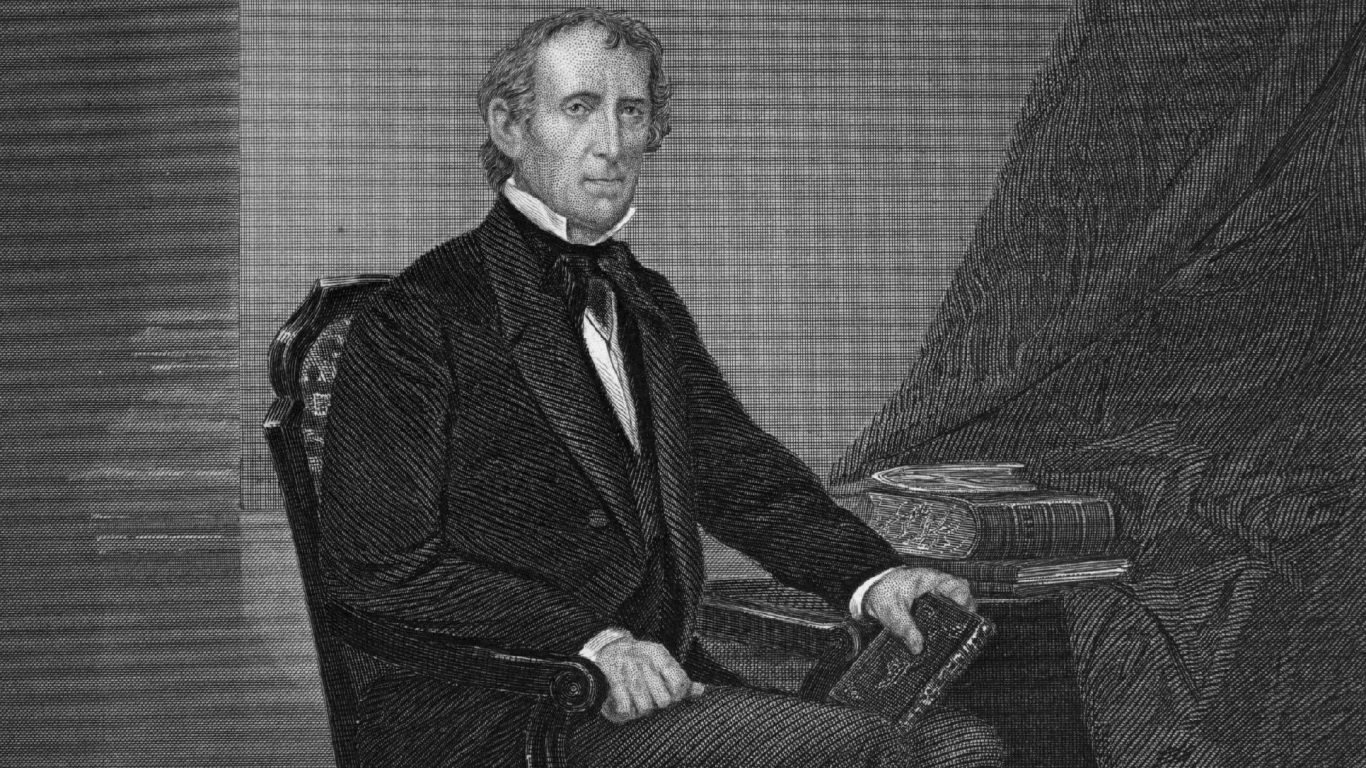
John Tyler
> When he died: Jan. 18, 1862
> Age: 71
> Cause of death: Stroke
Tyler was in poor health for most of his life, and in the first days of 1862, he grew dizzy and collapsed. A few days later, he found it difficult to breathe and a doctor was summoned. When he was assured that he wasn’t dying, Tyler replied “Perhaps it is best,” and expired, probably from a stroke.
[in-text-ad]
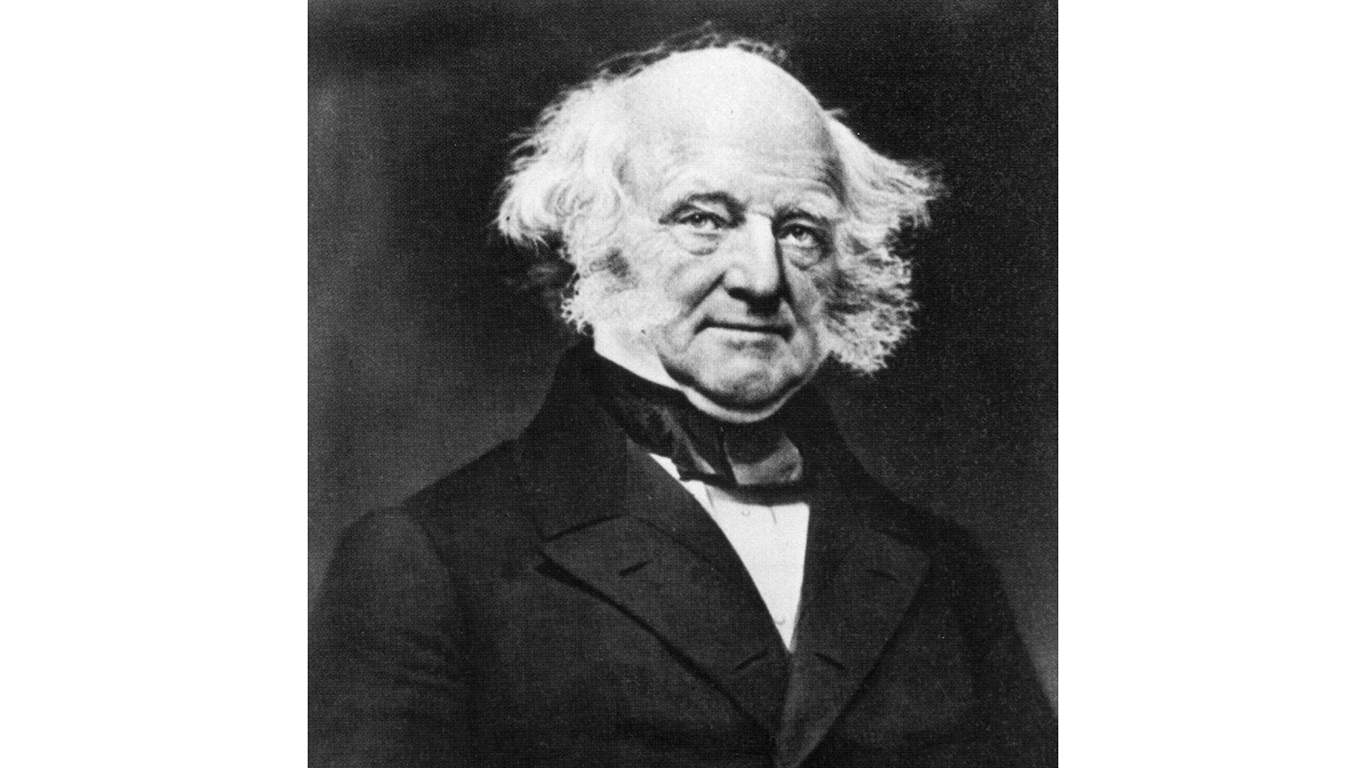
Martin Van Buren
> When he died: July 24, 1862
> Age: 79
> Cause of death: Bronchial asthma
After a year of declining health, Van Buren died at home at — according to his New York Times obituary — “the close of a long and serious illness, originating, we understand, in an affection of the chest.” Bronchial asthma was probably the cause, though heart disease may have been a complicating factor. His last words, cryptically, were “There is but one reliance.”
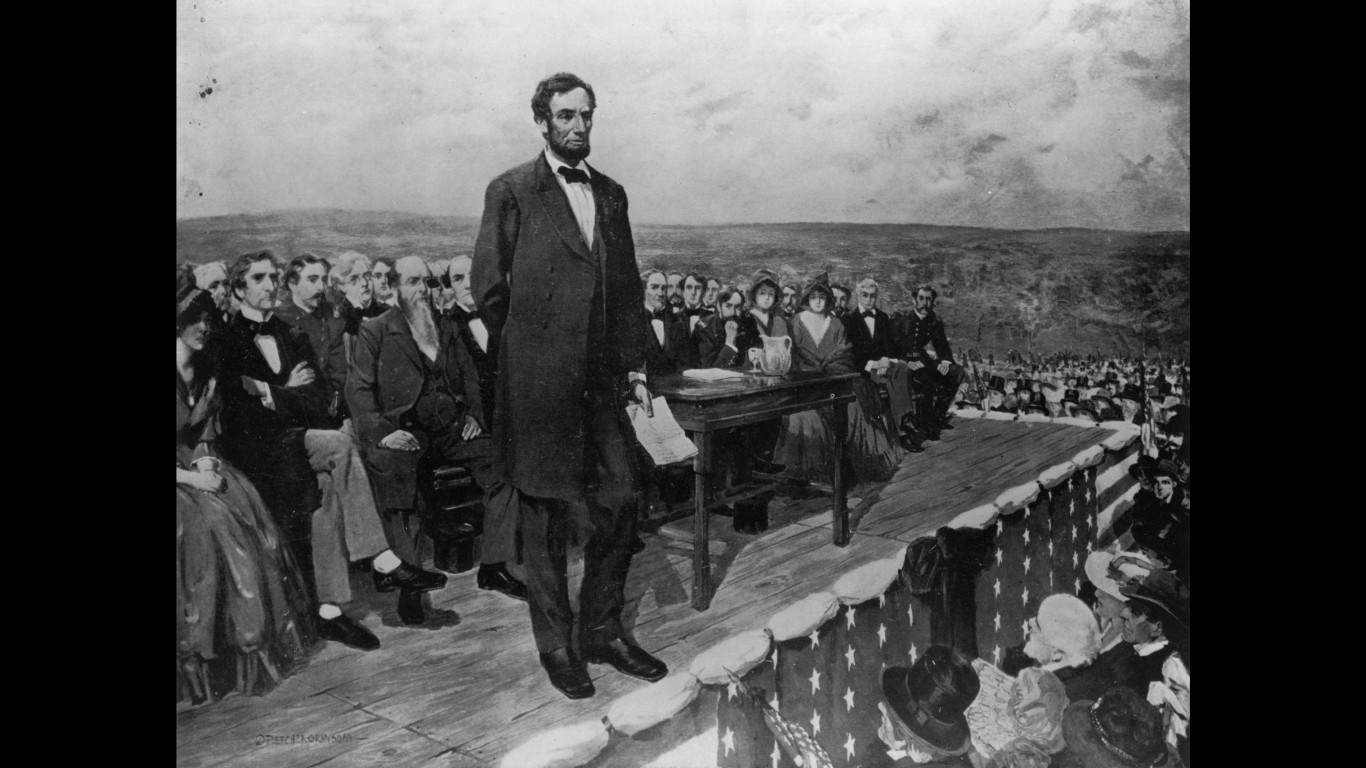
Abraham Lincoln
> When he died: April 15, 1865
> Age: 56
> Cause of death: Assassination (gunshot wound)
As every schoolchild probably knows, Lincoln was shot by an actor and part-time Confederate spy named John Wilkes Booth as the president and his wife were watching a play, “Our American Cousin,” at Ford’s Theatre in Washington, DC. After lingering for eight hours in a coma, Lincoln died. His last words are not recorded.
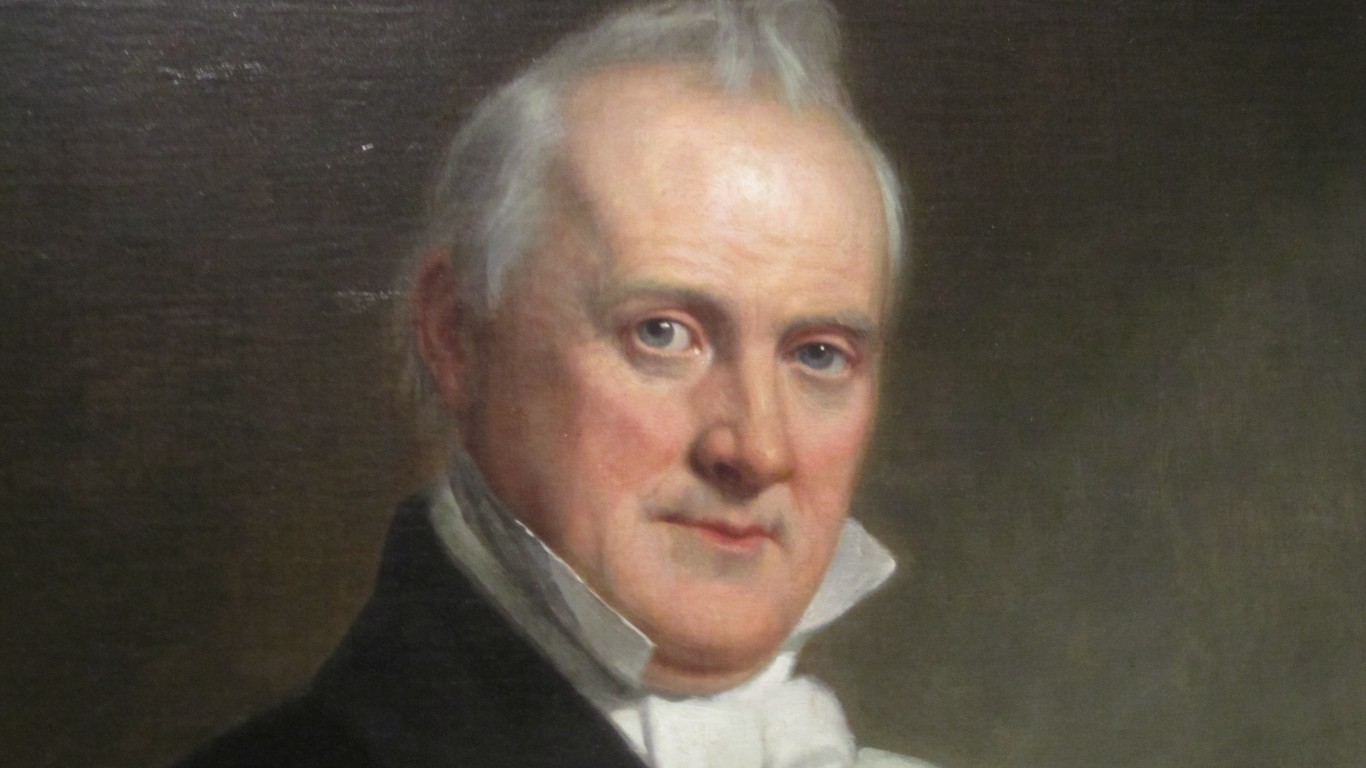
James Buchanan
> When he died: June 1, 1868
> Age: 77
> Cause of death: Respiratory failure
While some sources say that Buchanan simply died of a bad cold which got worse. It’s also possible, though, that he was one of more than 30 victims of a still-mysterious affliction called National Hotel disease, which affected some guests who stayed — as Buchanan had — at the Washington hotel of that name. Buchanan’s last words are said to have been “Oh, Lord God Almighty, as thou wilt!”
[in-text-ad-2]
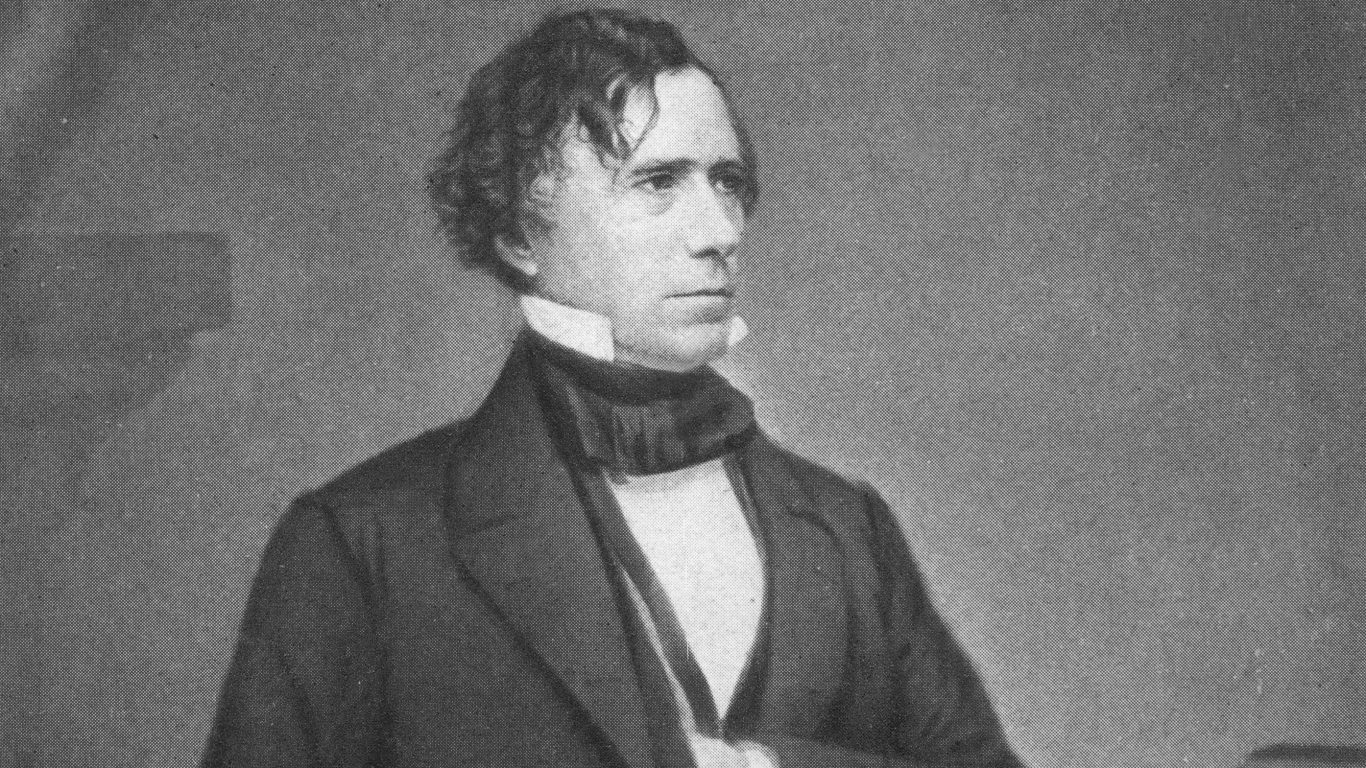
Franklin Pierce
> When he died: Oct. 8, 1869
> Age: 64
> Cause of death: Cirrhosis
Pierce was a prodigious drinker for most of his adult life, and refused to give up alcohol even when he was diagnosed with cirrhosis. No family members were present when the disease claimed his life. His last words are unknown.
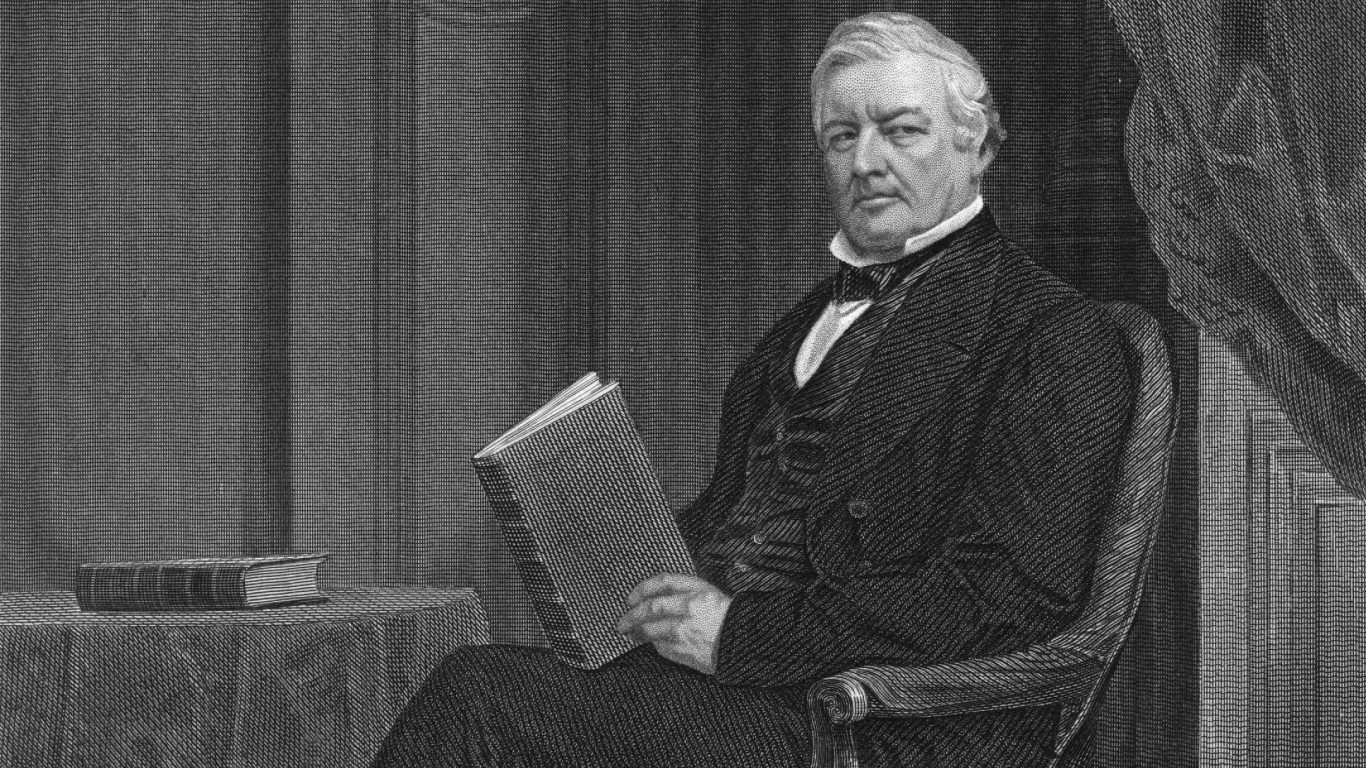
Millard Fillmore
> When he died: March 8, 1874
> Age: 74
> Cause of death: Stroke
Unlike some of his predecessors, Fillmore apparently led a healthy life until he had a stroke in February 1874. He survived, but was felled by a second one the following month. His last words were apparently a comment on some soup he had been given on his sickbed: “The nourishment is palatable.”
[in-text-ad]

Andrew Johnson
> When he died: July 31, 1875
> Age: 66
> Cause of death: Stroke
Like Millard Fillmore, Johnson suffered two strokes within a brief period of time, the second of them killing him. Some sources record his last words as being identical to those of Andrew Jackson, but that is almost certainly an error. At the moment of his death or shortly before, Johnson is reported to have said “My right side is paralyzed. I need no doctor. I can overcome my own troubles.”
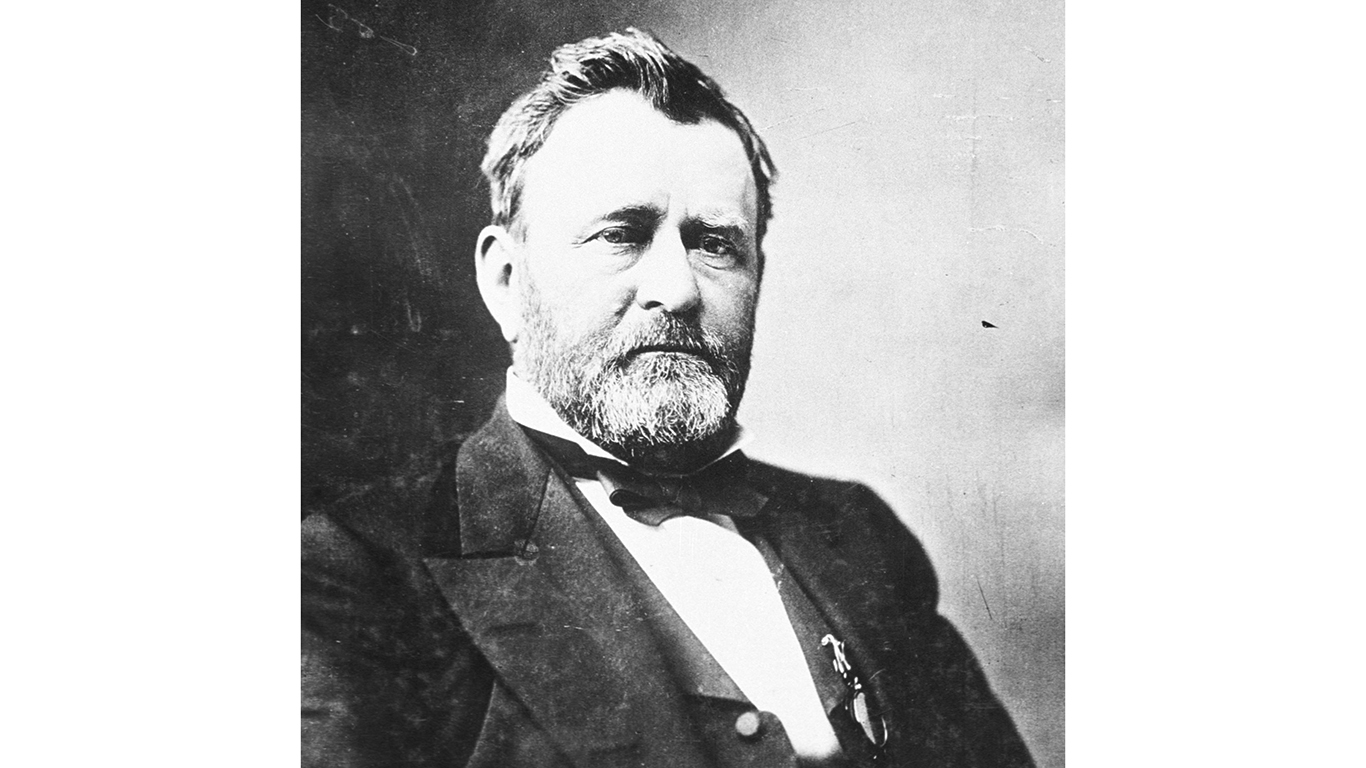
Ulysses S. Grant
> When he died: July 23, 1885
> Age: 63
> Cause of death: Throat cancer
Grant was diagnosed with throat cancer in 1884, and died a year later. Some 1.5 million people attended his funeral in New York City; the tomb on New York City’s Upper West Side where he was laid to final rest in 1897 is the largest mausoleum in North America. Considering the nature of the ailment that killed him, it is perhaps not surprising that the final word he spoke was “Water.”
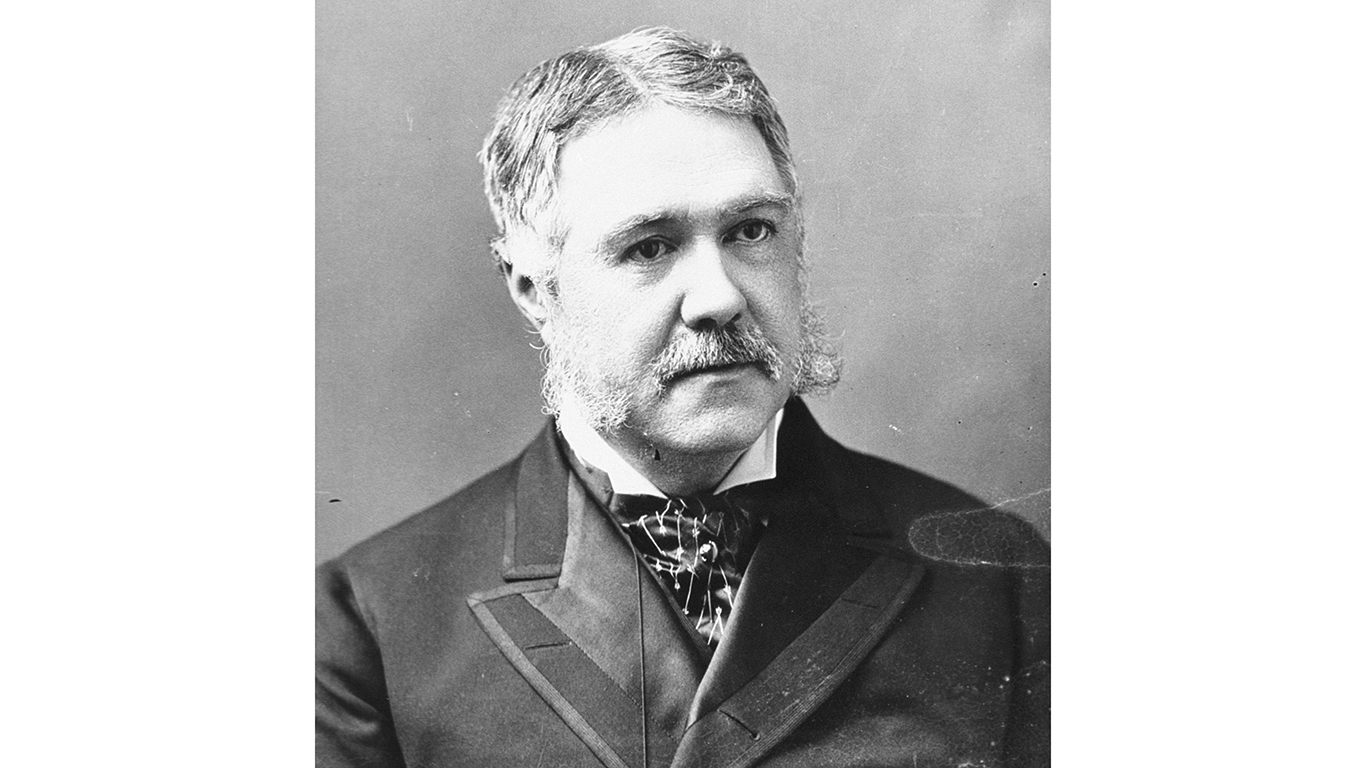
Chester A. Arthur
> When he died: Nov. 18, 1886
> Age: 57
> Cause of death: Stroke
Early in his presidency, Arthur was diagnosed with nephritis, a kidney disease. The state of his health waxed and waned in subsequent years, and he took a turn for the worse after spending a summer in Connecticut in 1886. Returning home, he had most of his papers, including presidential ones, destroyed. He died of a stroke or cerebral hemorrhage in November of that year. No final words have been definitively attributed to him.
[in-text-ad-2]
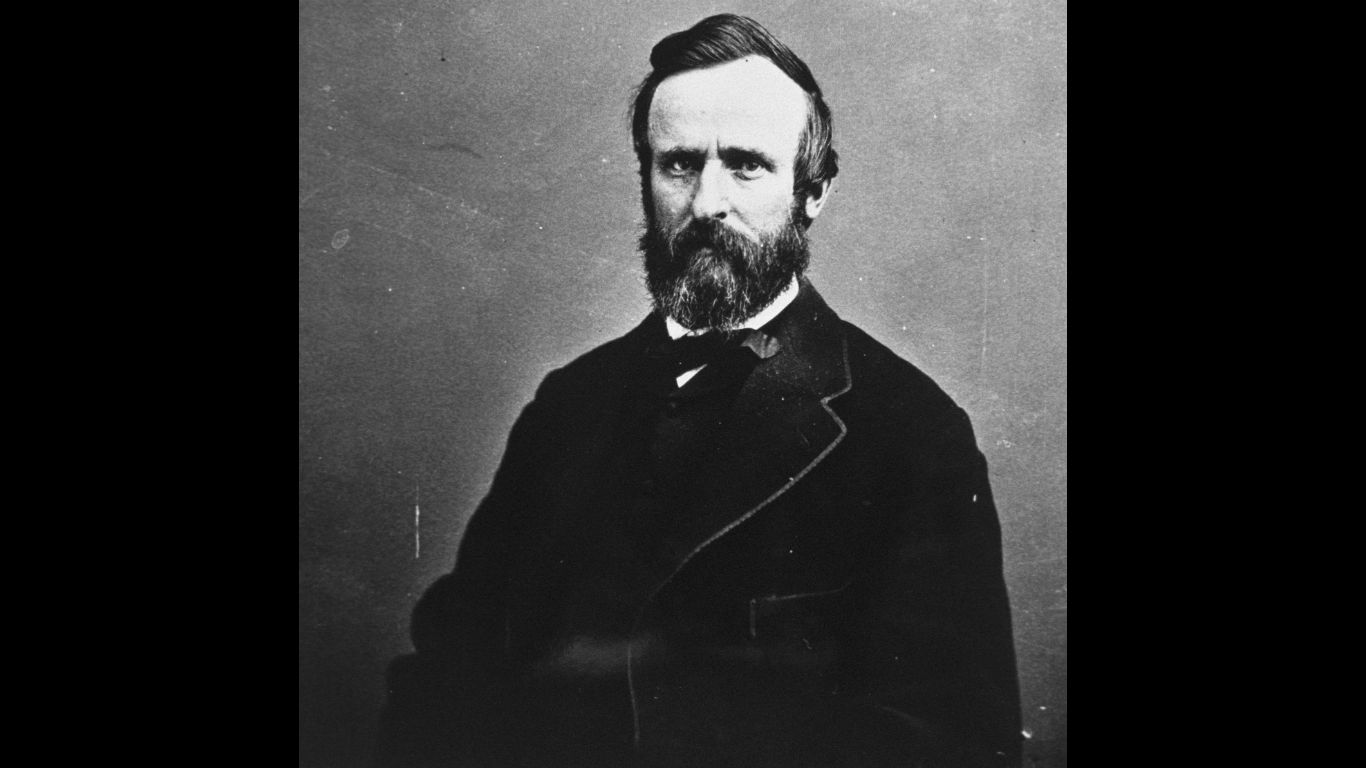
Rutherford B. Hayes
> When he died: Jan. 17, 1893
> Age: 70
> Cause of death: Heart failure
It was said that the soul left Hayes’s home when his wife, Lucy, died in 1889. He died less than four years later after suffering a heart attack. “I know that I’m going where Lucy is,” he said before he passed away.
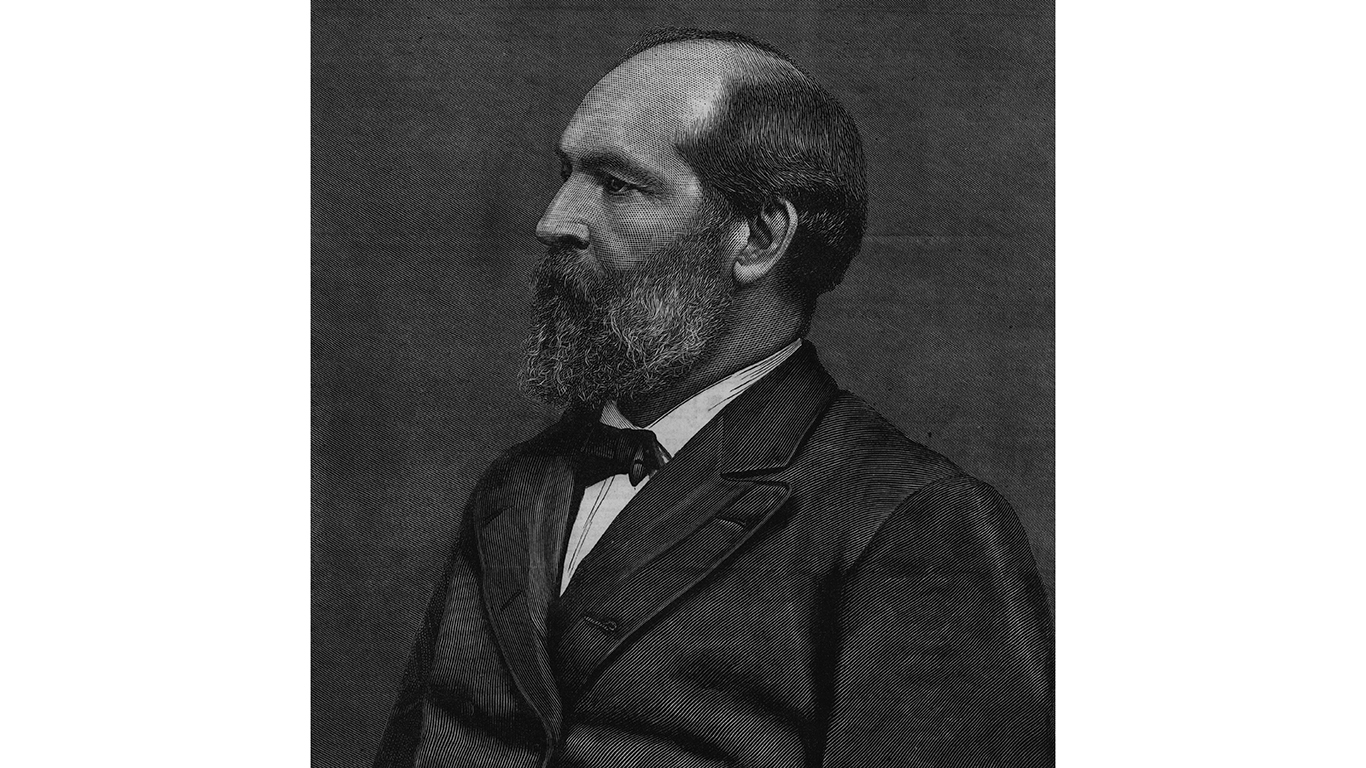
James A. Garfield
> When he died: Sept. 19,1881
> Age: 49
> Cause of death: Assassination (complications of a gunshot wound)
Attorney and political wannabe Charles J. Guiteau, who believed that Garfield’s death would reunite a fractured Republican Party, shot the president twice in July of 1881. Garfield lingered for months, undergoing various ineffectual medical treatments, before dying from infections complicated by pneumonia and heart problems. “Swaim, can’t you stop the pain?” he asked, speaking to his friend General David Swaim, and then left the world.
[in-text-ad]
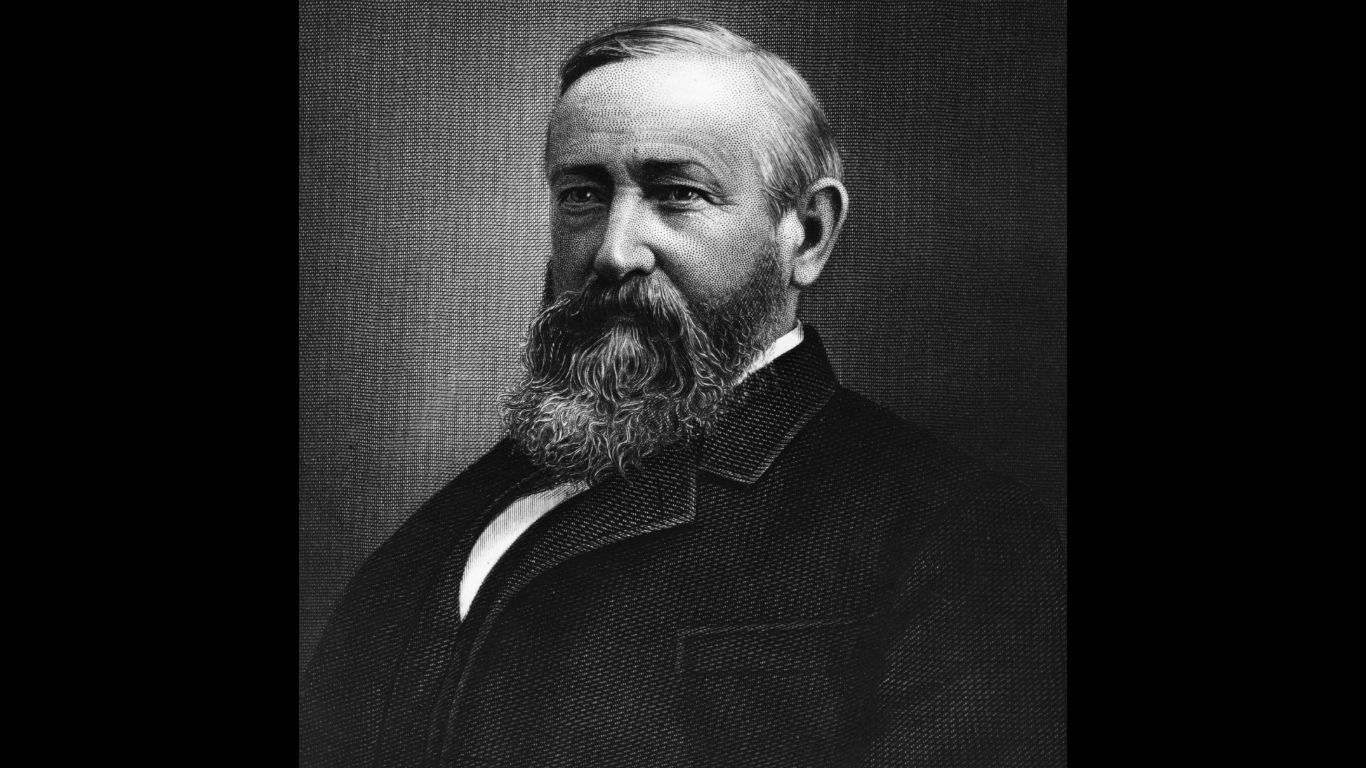
Benjamin Harrison
> When he died: March 13, 1901
> Age: 67
> Cause of death: Pneumonia
Harrison contracted a serious case of the flu in February of 1901. He grew sicker and developed pneumonia, which killed him in mid-March. His last words were “Doctor, my lungs.”
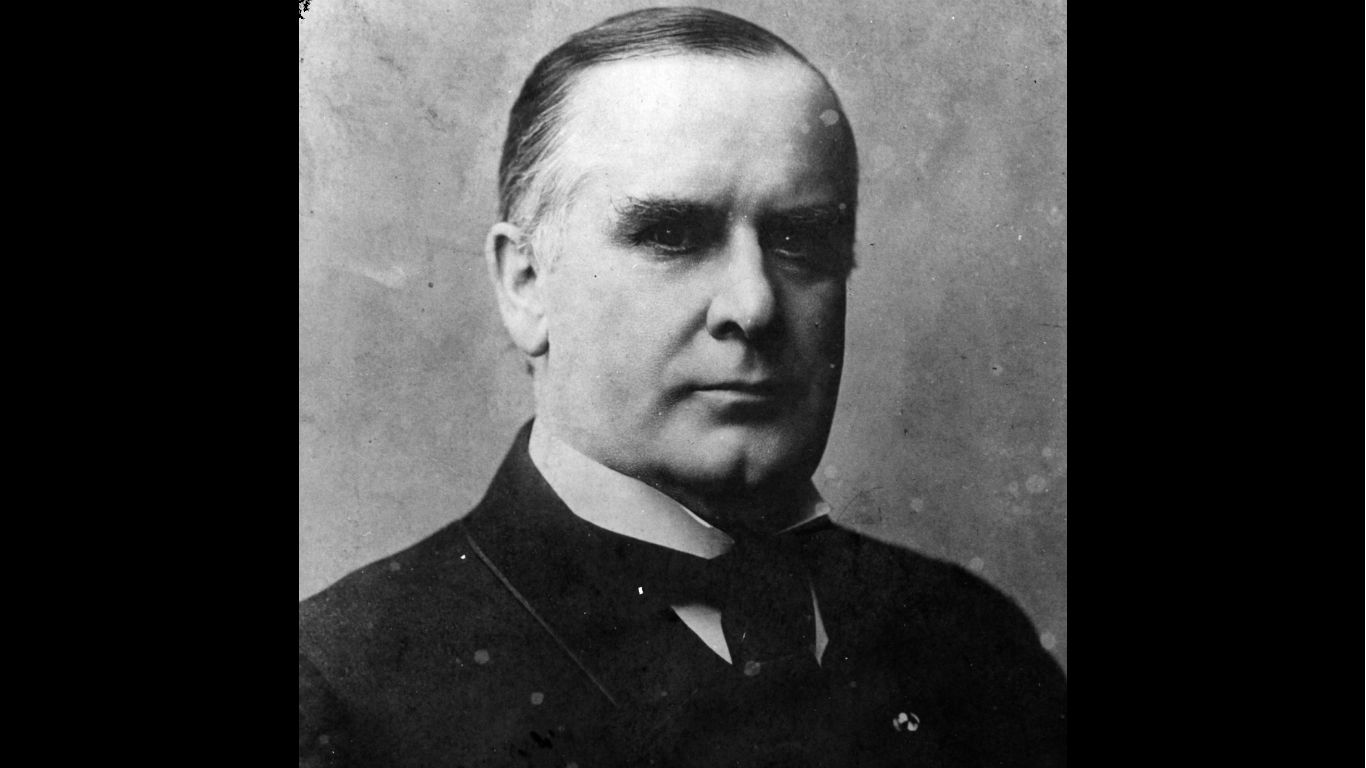
William McKinley
> When he died: Sept. 14, 1901
> Age: 58
> Cause of death: Assassination (complications of a gunshot wound)
The second U.S. president to be assassinated, McKinley was shot by an anarchist, Leon Czolgosz while attending the Pan-American Exposition in Buffalo. He initially seemed to be recovering from his wounds, but got worse — from internal gangrene as a result of one of the bullets, it turned out. When his wife cried at his bedside saying that she wished to die too, he spoke his final words: “We are all going, we are all going. God’s will be done, not ours.”
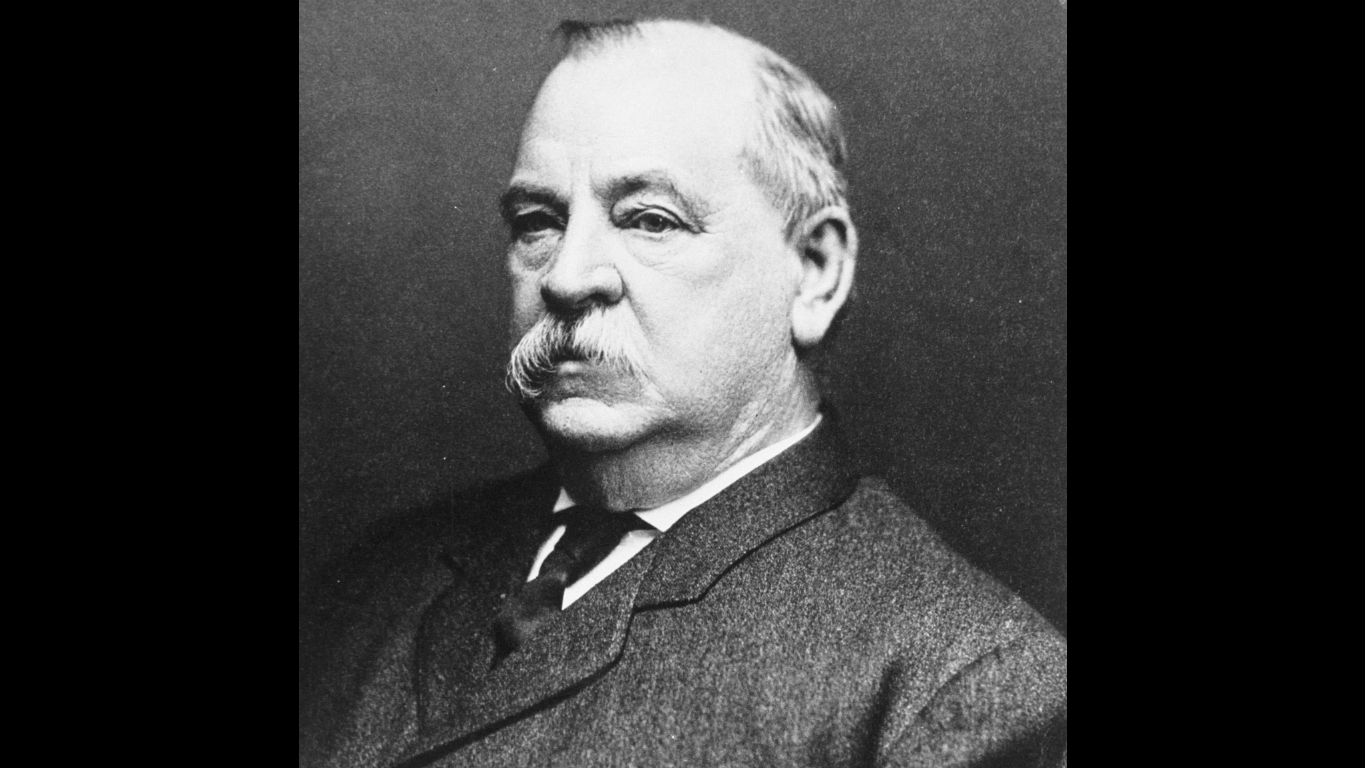
Grover Cleveland
> When he died: June 24, 1908
> Age: 71
> Cause of death: Heart failure
Cleveland’s health had been poor for several years when he suffered a heart attack at home in Princeton. “I have tried so hard to do right,” he said before expiring.
[in-text-ad-2]
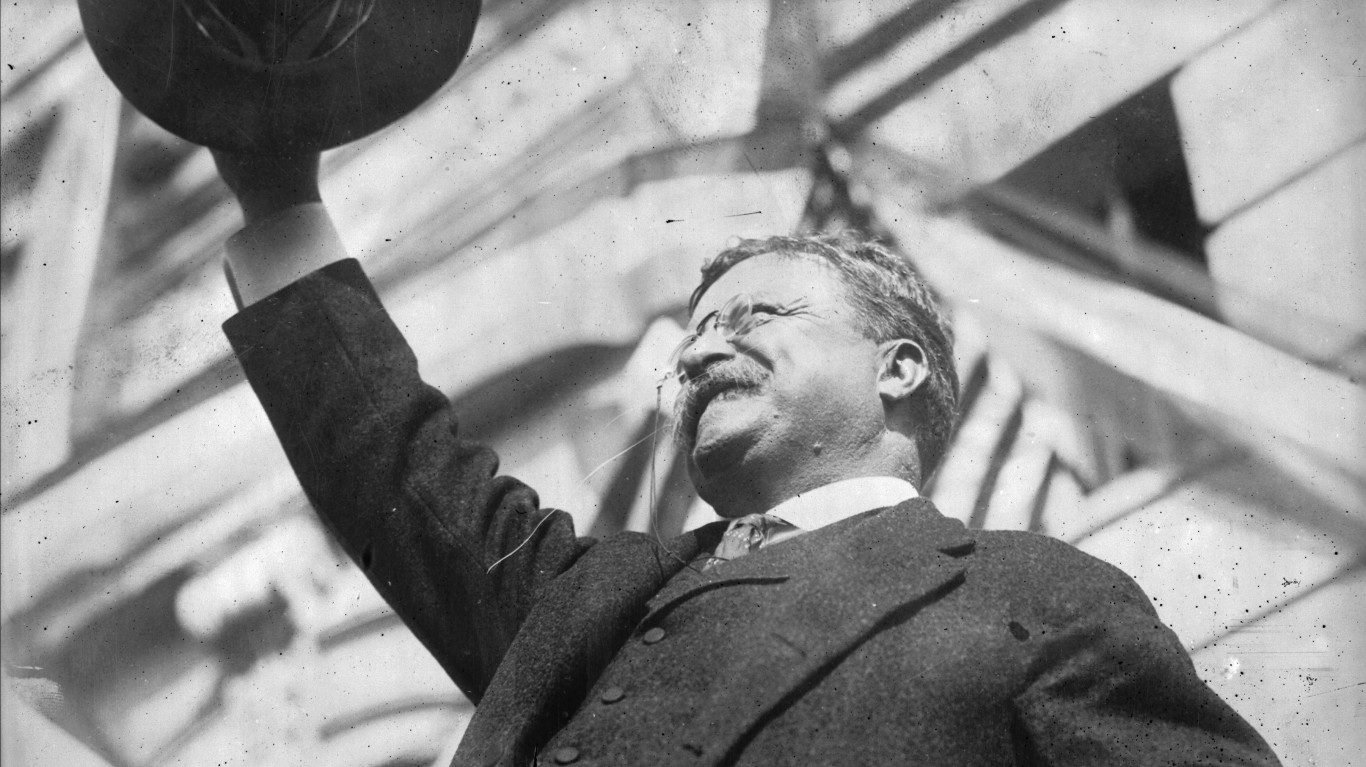
Theodore Roosevelt
> When he died: Jan. 6, 1919
> Age: 60
> Cause of death: Blood clot
Having survived an assassination attempt in 1912, Roosevelt suffered in his later years from the effects of tropical diseases he had acquired in Cuba and on a two-year expedition to the Amazon. He was hospitalized in late 1918, and in early January of the next year, he died in his sleep when a blood clot reached his lungs. The last thing he said was apparently “Put out the light,” spoken to his valet before he dozed off.
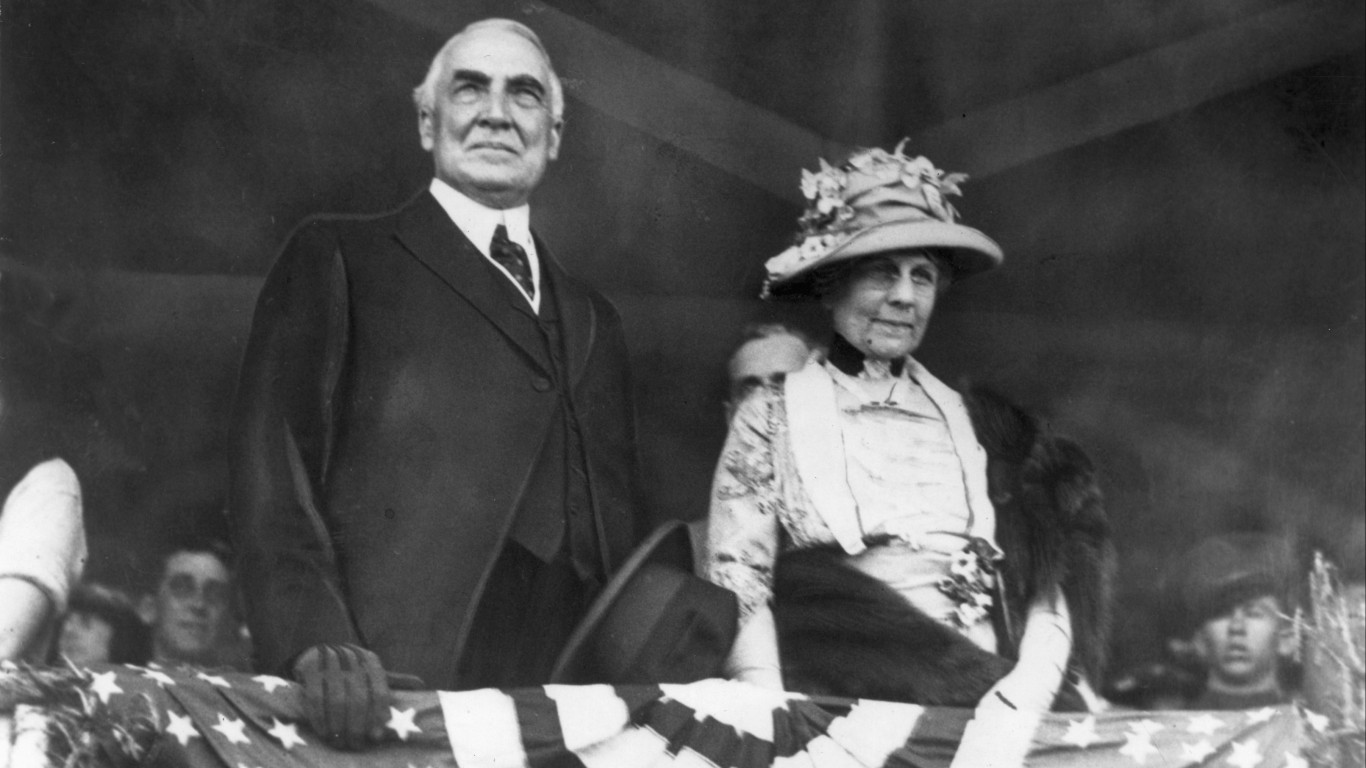
Warren G. Harding
> When he died: Aug. 2, 1923
> Age: 57
> Cause of death: Heart failure
After complaining of abdominal pain, Harding was diagnosed with heart problems. He also developed pneumonia. Doctors treated him in a hotel room in San Francisco. There, one evening, as his wife was reading an article favorable to him that had appeared in the Saturday Evening Post, he said “That’s good. Go on, read some more,” then convulsed and died.
[in-text-ad]
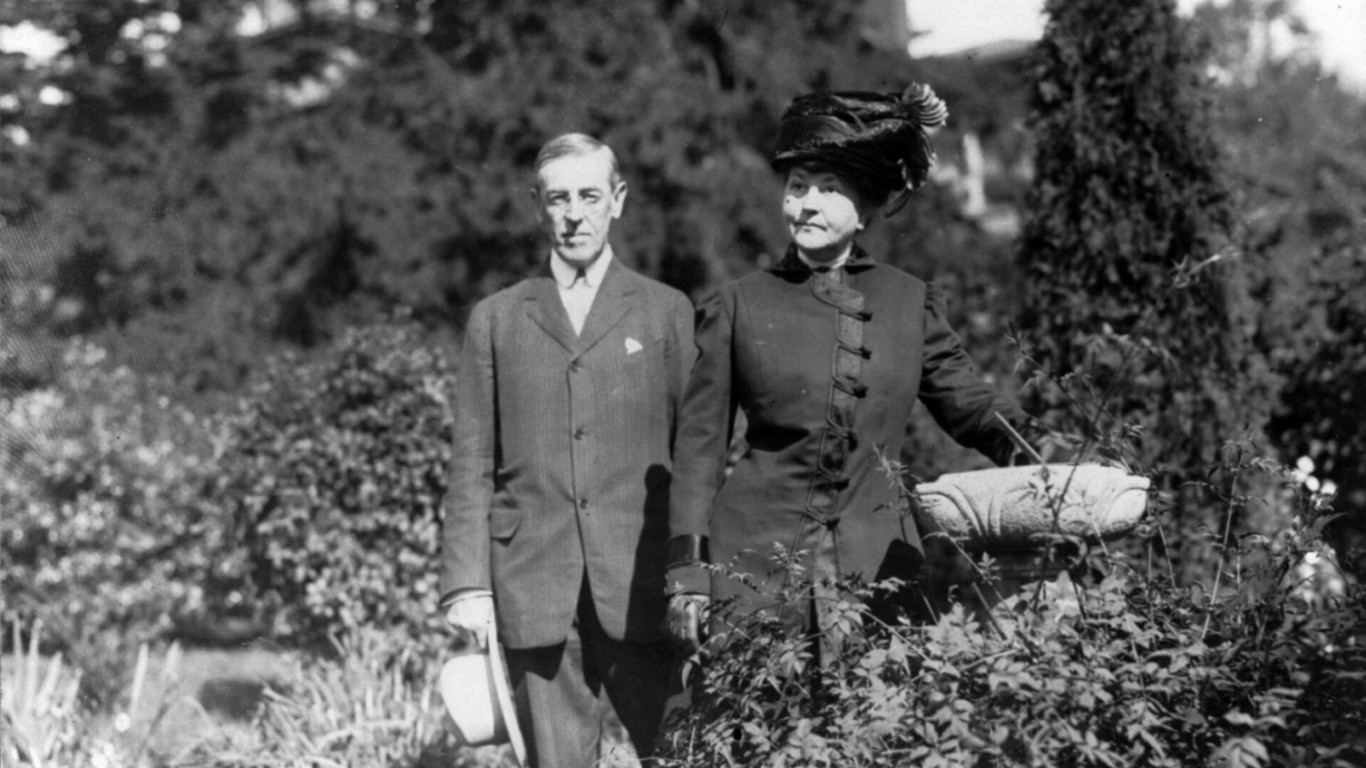
Woodrow Wilson
> When he died: Feb. 3, 1924
> Age: 67
> Cause of death: Complications of a stroke
Wilson suffered a stroke in 2019 that left him partially paralyzed. He downplayed the severity of his condition and became increasingly erratic and weak. The long-term effects of his stroke eventually killed him. At last acknowledging the state of his health, his final words were “I am a broken piece of machinery. When the machine is broken- I am ready.”
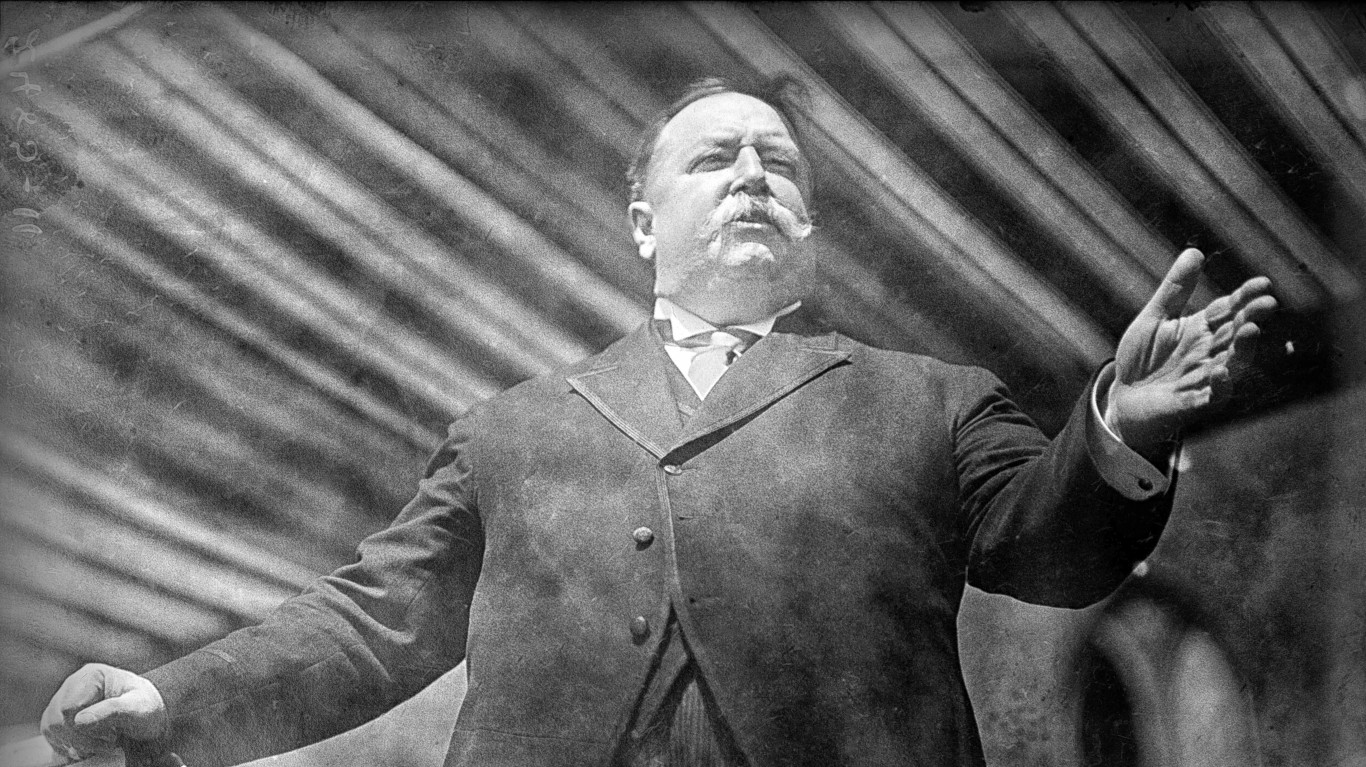
William Howard Taft
> When he died: March 8, 1930
> Age: 72
> Cause of death: Heart failure
Taft was overweight for much of his adult life, at one time reaching 340 pounds. He undertook a diet, and eventually lost about a hundred pounds, but his health had been damaged and his heart finally gave out. No one remembers his last words.
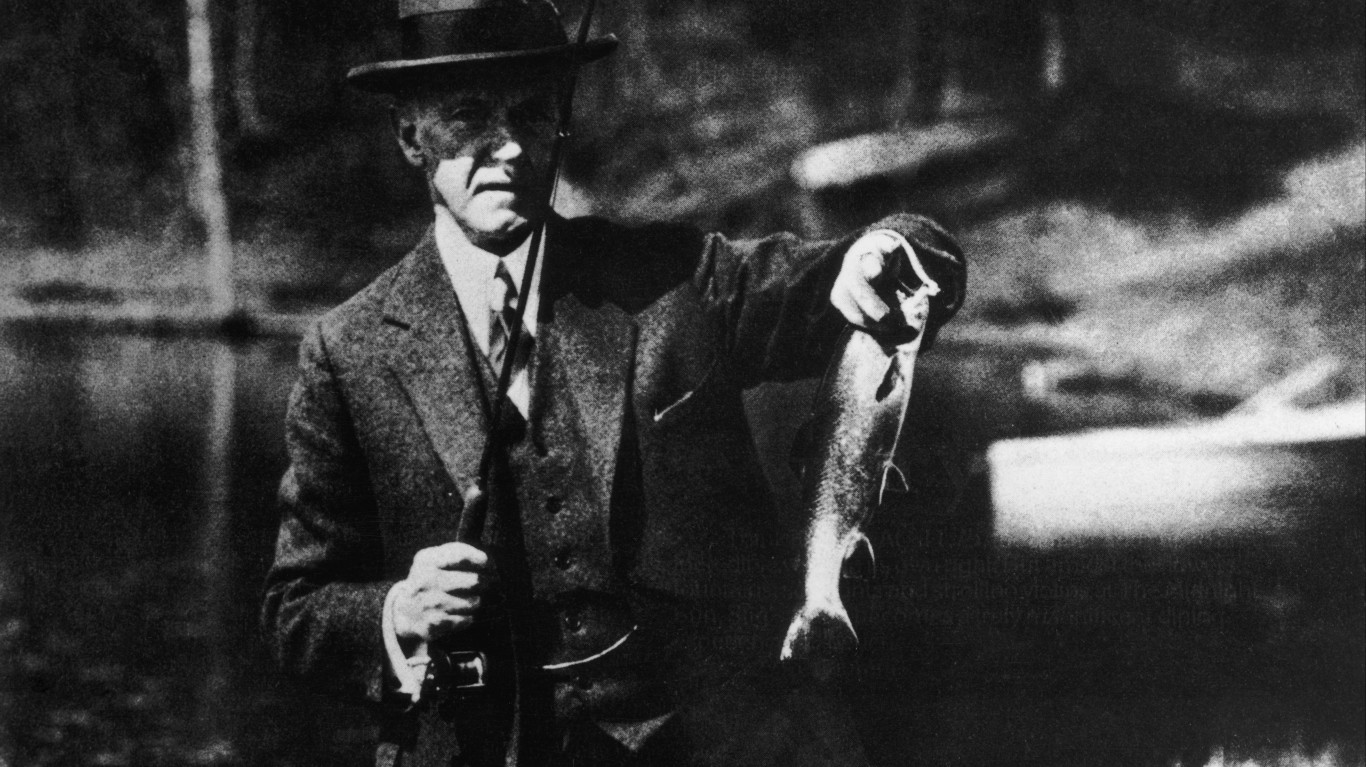
Calvin Coolidge
> When he died: Jan. 5, 1933
> Age: 60
> Cause of death: Heart failure
When it was reported that Coolidge, who was famously taciturn — his nickname was Silent Cal — had died of a heart attack at home in Vermont, the Algonquin Round Table with Dorothy Parker reportedly asked “How can they tell?” It is said that his last words were a greeting to a carpenter who was working at his house — “Good morning, Robert.”
[in-text-ad-2]
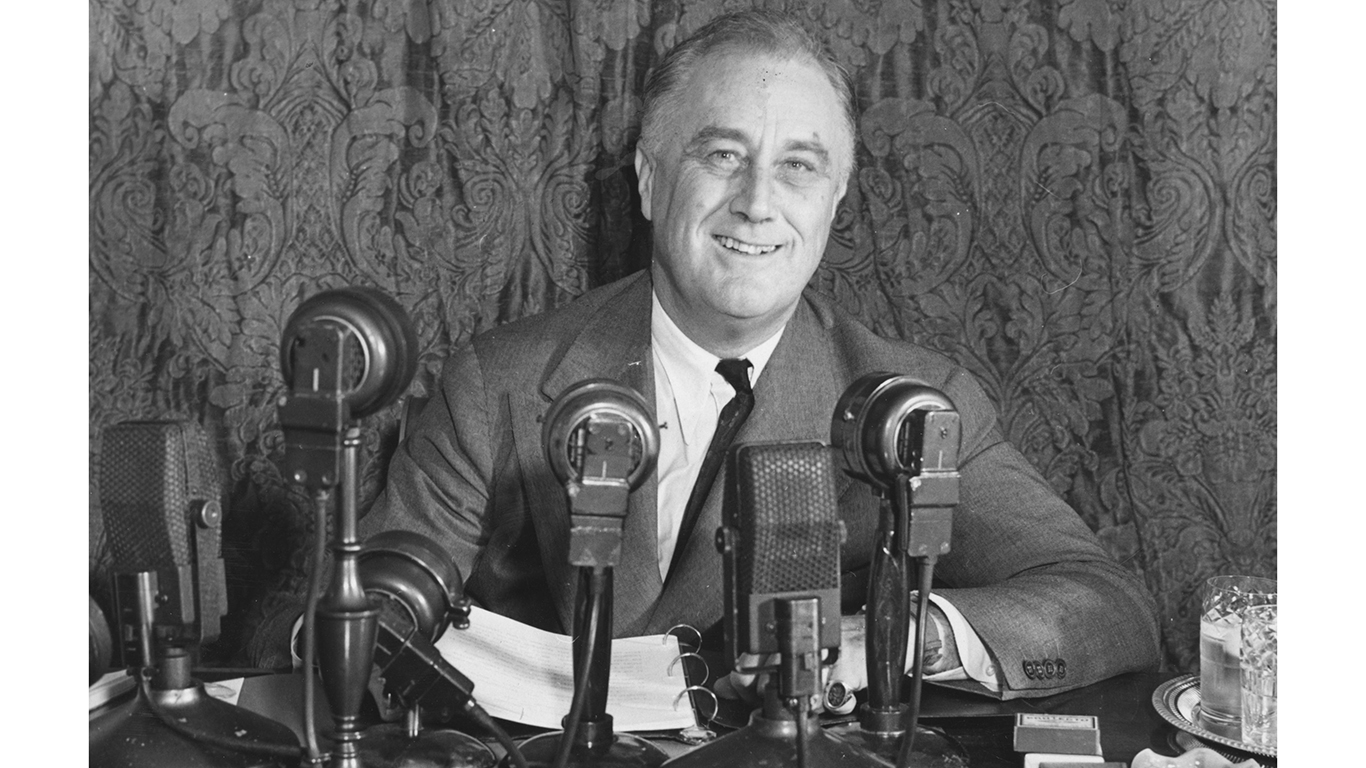
Franklin D. Roosevelt
> When he died: April 12, 1945
> Age: 63
> Cause of death: Cerebral hemorrhage
Despite contracting polio in 1921, Roosevelt served as governor of New York and then as president for four terms. In 1945, while sitting for a portrait at his “Little White House” in Warm Springs, Georgia, he announced “I have a terrific headache.” Shortly thereafter, a cerebral hemorrhage took his life.
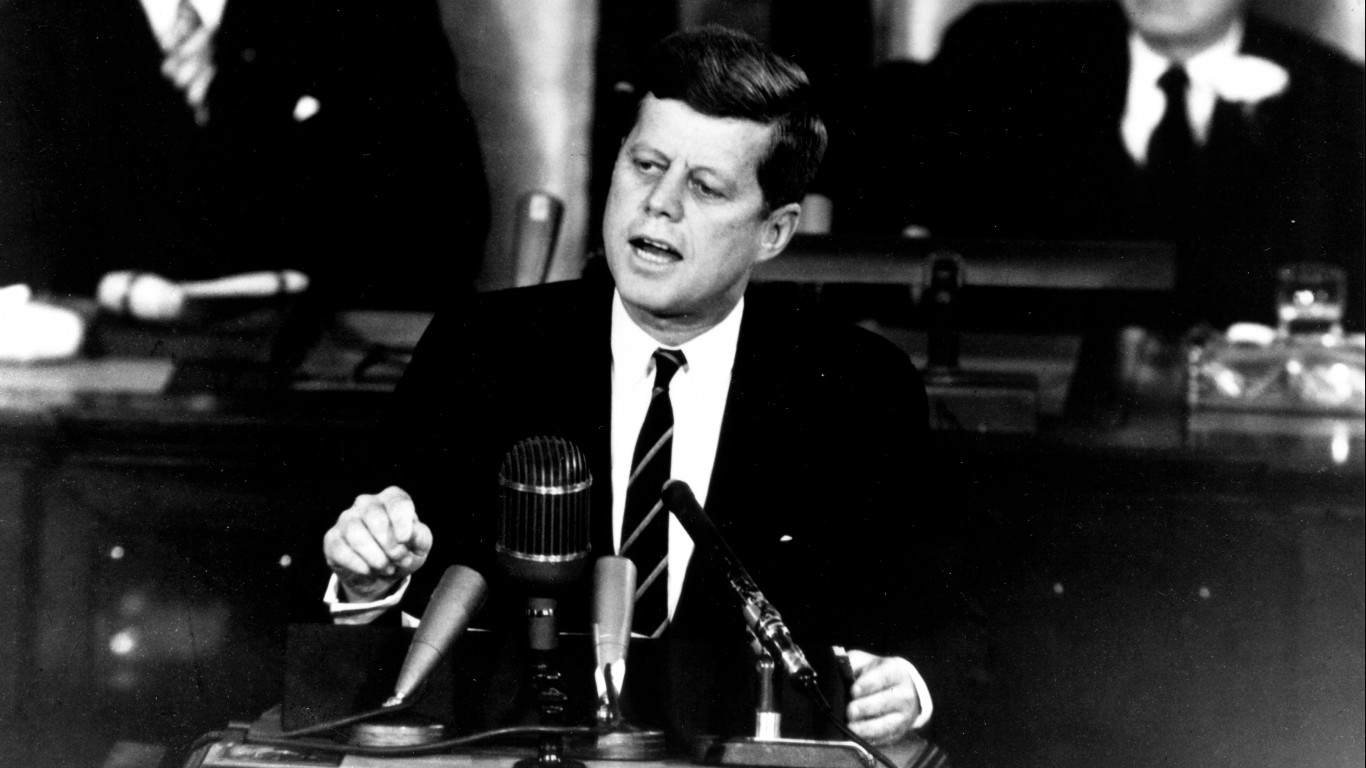
John F. Kennedy
> When he died: Nov. 22, 1963
> Age: 46
> Cause of death: Assassination (gunshot wound)
As the whole world knows, Kennedy was shot — apparently by Lee Harvey Oswald (though countless conspiracy theories have appeared over the years) — as he rode through downtown Dallas in a motorcade. He was rushed to the hospital unconscious and died half an hour later. Ironically, Nellie Connally, wife of Texas governor John Connally, had just said something to Kennedy along the lines of “You can’t say the people of Dallas don’t love you,” to which he replied “You certainly can’t” — seconds before he was shot.
[in-text-ad]
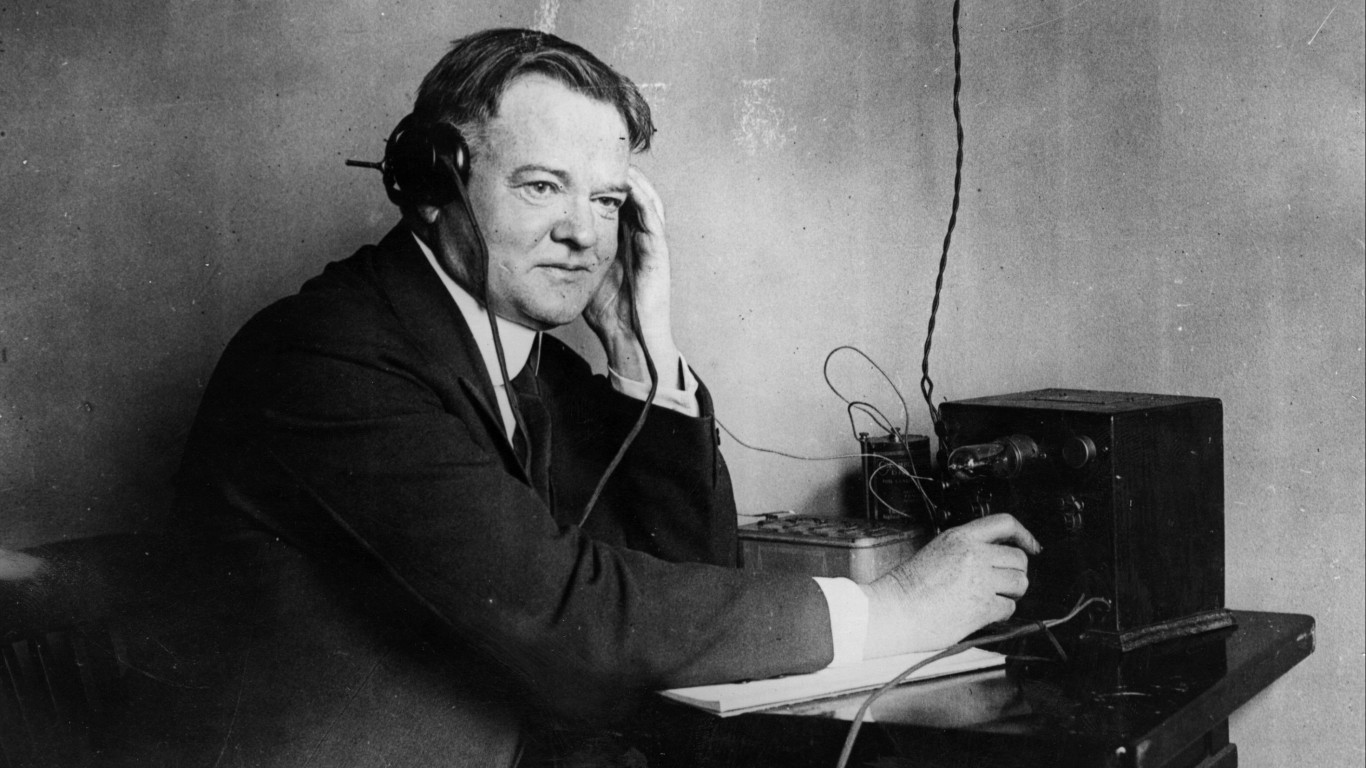
Herbert Hoover
> When he died: Oct. 20, 1964
> Age: 90
> Cause of death: Internal bleeding
Hoover was 90 when he died — the same age as John Adams, the only other president up to that point to reach his tenth decade. He had had intestinal issues, including a growth on his large intestine which was removed in 1962. When massive internal bleeding began, doctors treated him with transfusions, but, as the New York Times put it in their obituary, “[T]oxins poisoned his weakened system and, when bleeding recurred early yesterday, his heart could no longer take the strain.” No last words are recorded.
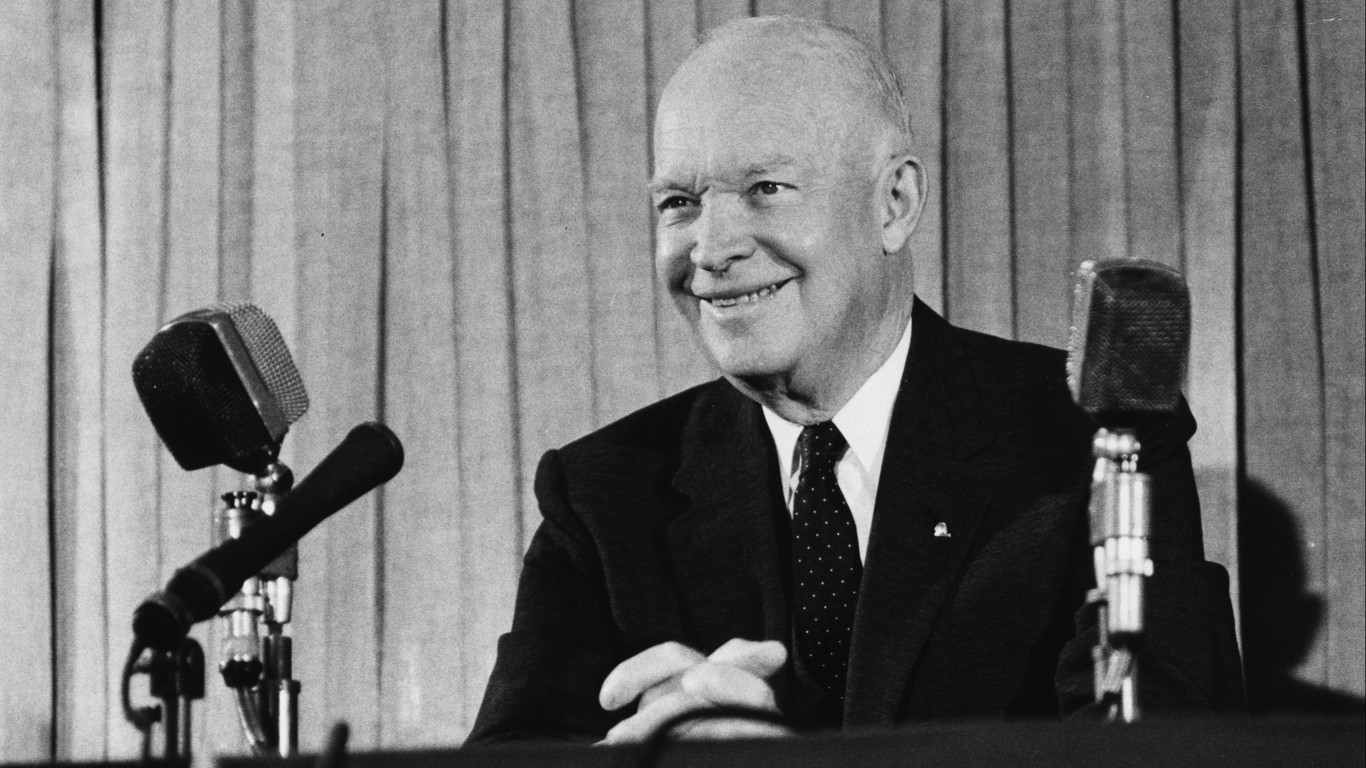
Dwight D. Eisenhower
> When he died: March 28, 1969
> Age: 78
> Cause of death: Heart failure
Eisenhower, a smoker and drinker, had serious health problems as he aged, including two heart attacks, a mild stroke, Crohn’s disease, and an inflamed gallbladder. Congestive heart failure finally claimed his life. He is said to have announced, shortly before he died, “I want to go. God take me.”
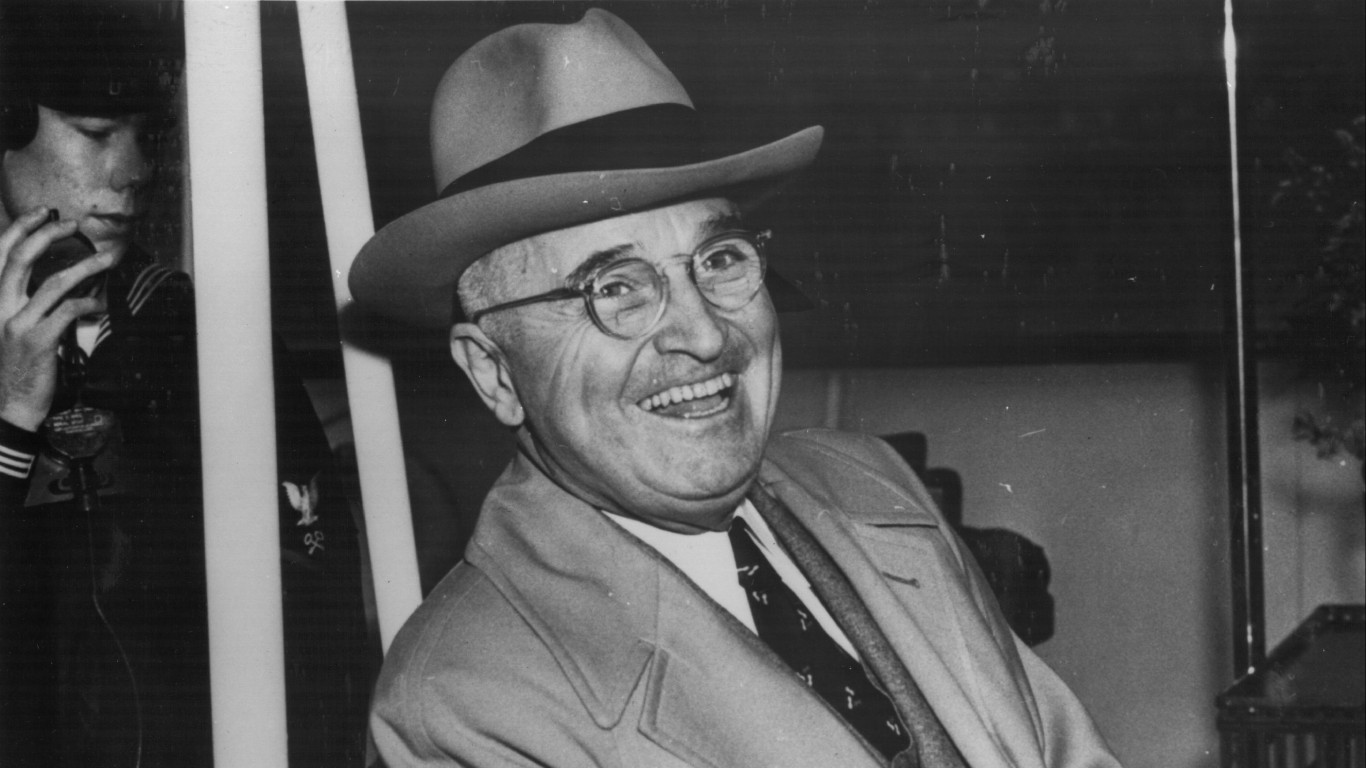
Harry S. Truman
> When he died: Dec. 26, 1972
> Age: 88
> Cause of death: Pneumonia, multiple organ failure
Though he never completely recovered from a fall at his house in 1964, Truman lasted another eight years, until he was admitted to the hospital with pneumonia. There, his vital organs began to fail and he went into a coma leading to his death. His last words are unknown.
[in-text-ad-2]
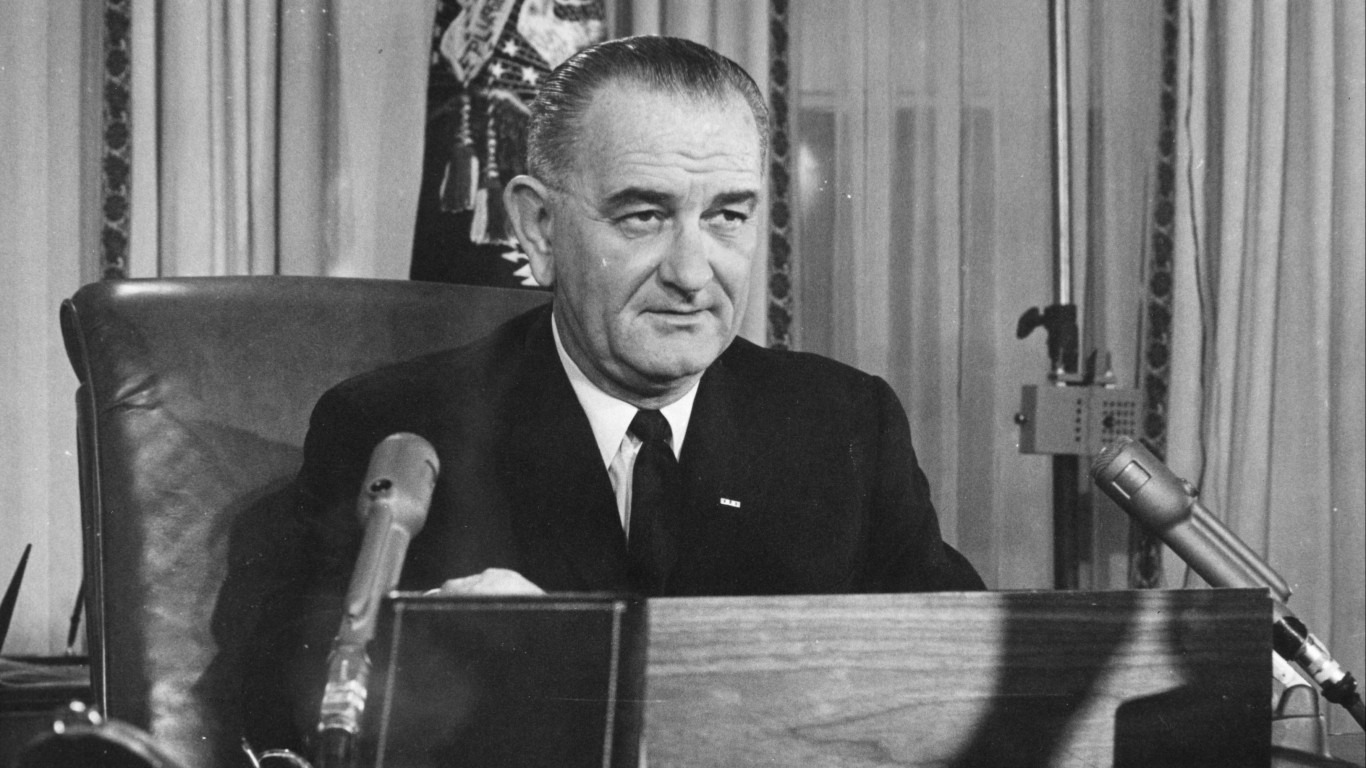
Lyndon B. Johnson
> When he died: Jan. 22, 1973
> Age: 64
> Cause of death: Heart failure
A lifetime heavy smoker, Johnson once told newscaster Walter Cronkite that as far as his cardiac health was concerned, it was better “to smoke than to be nervous.” Ten days later, in his bedroom, he had the heart attack that killed him. Before he lost consciousness, he called out “Send Mike immediately” — Mike Howard being one of his Secret Service agents. When Howard got to Johnson’s bedside, he was already dead.
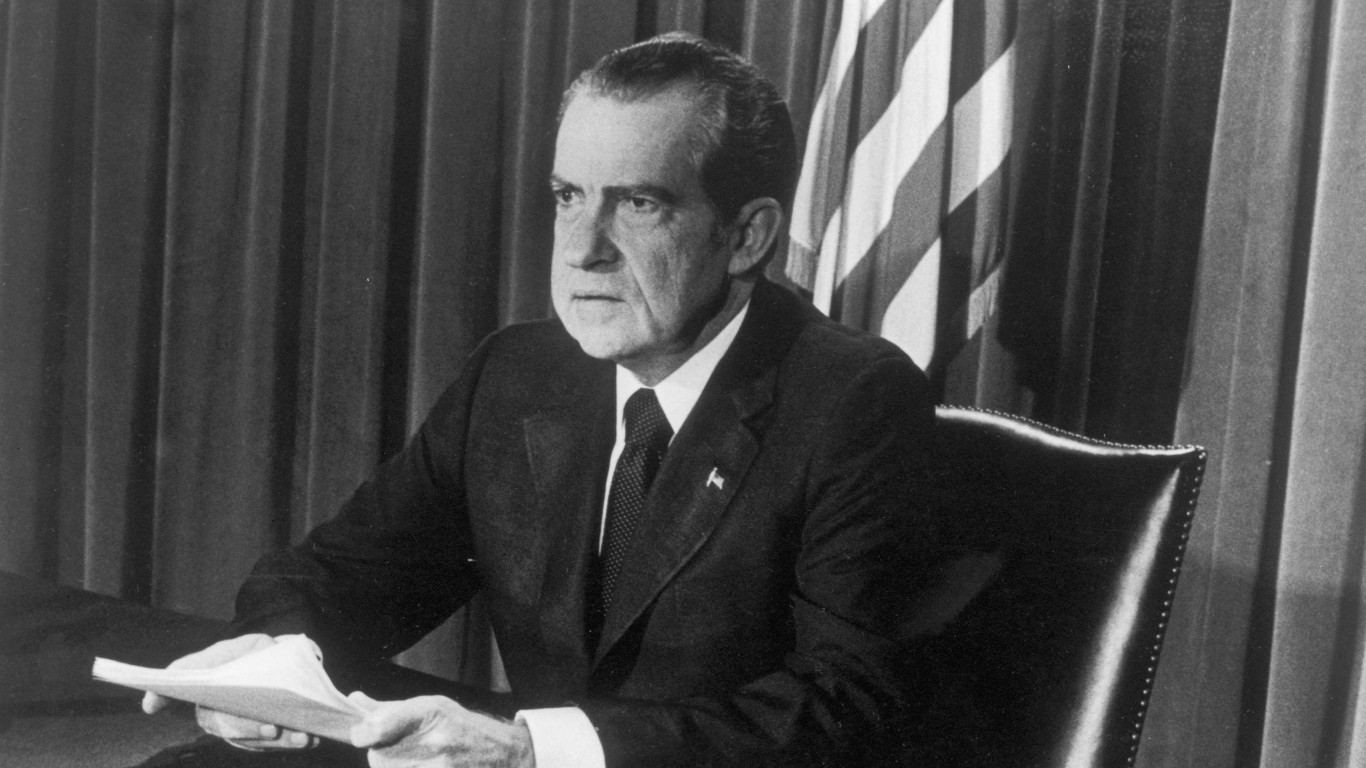
Richard Nixon
> When he died: April 22, 1994
> Age: 81
> Cause of death: Stroke
Nixon had long suffered from atrial fibrillation, a cardiac arrhythmia which can cause blood clotting. Four days before his death, a clot traveled to his brain and he suffered a stroke. He fell into a coma at the hospital before dying. As he had his stroke, he apparently said “Help!” to his housekeeper. In the short time before his death, he was unable to speak any further words.
[in-text-ad]
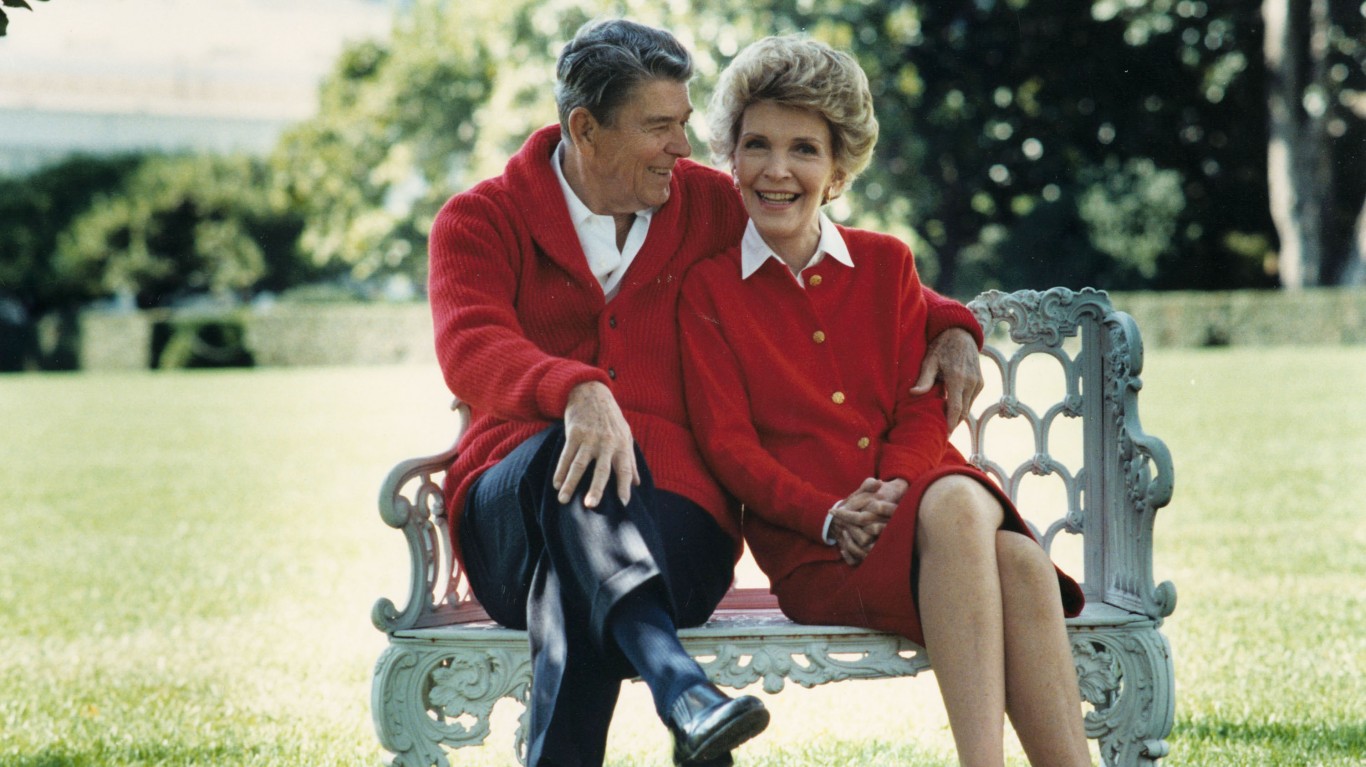
Ronald Reagan
> When he died: June 5, 2003
> Age: 93
> Cause of death: Alzheimer’s disease, pneumonia
During his years in office, throughout most of the 1980s, Reagan underwent colon, prostate, skin cancer, and hand surgery. In 1994, when he was 83, he was diagnosed with Alzheimer’s disease, and when he died of pneumonia, the ailment was a complicating factor. At the time of his death, he was the longest-lived president in American history, outlasting John Adams and Herbert Hoover by three years. (Gerald Ford — see below — was to outlast Reagan by 45 days. George H.W. Bush died at 94. Jimmy Carter, who is still alive today, is currently 96, outpacing them all.) There is no record of his last words.
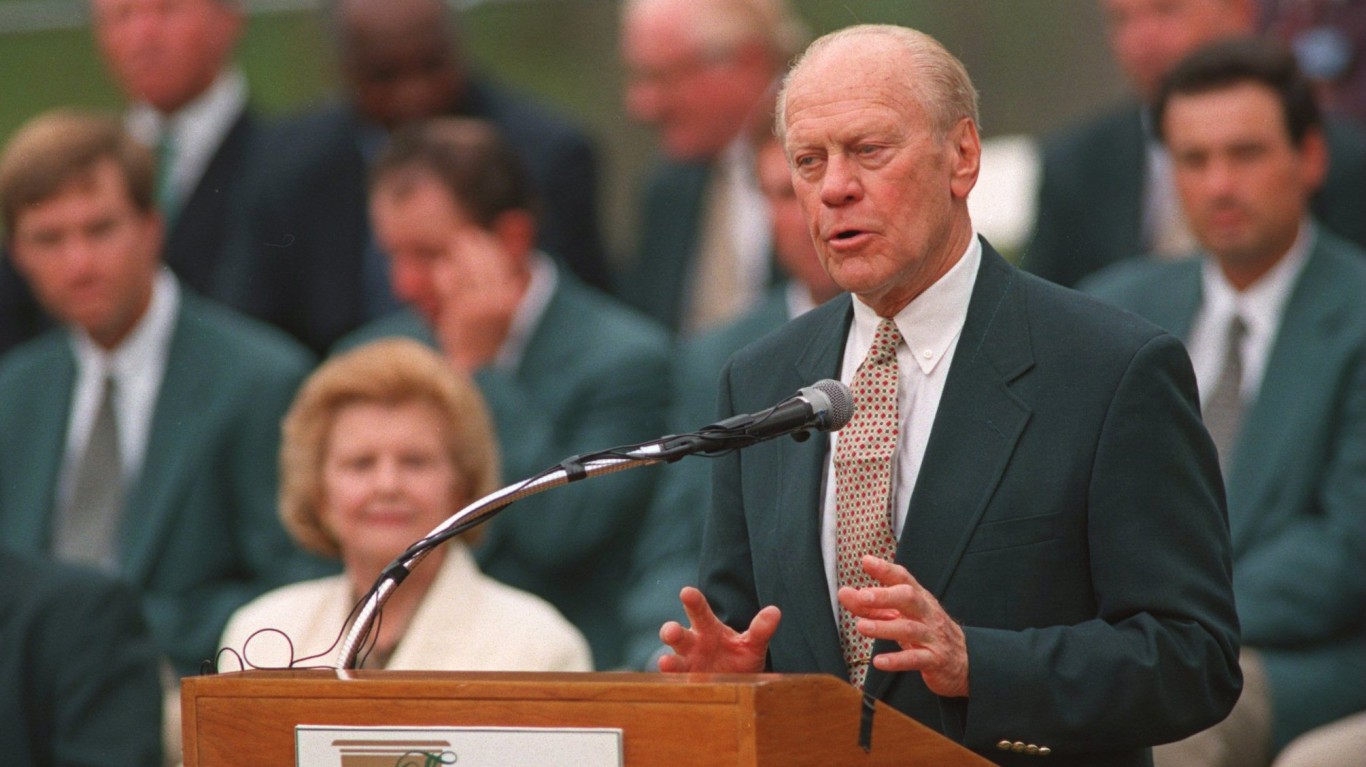
Gerald Ford
> When he died: Dec. 26, 2006
> Age: 93
> Cause of death: Cerebrovascular disease, arteriosclerosis
Ford had two strokes in 2000, and a pacemaker was subsequently implanted. One of his heart valves became calcified, and he had severe coronary artery disease. Cerebrovascular disease, listed as one cause of his death, is the damage or deformation of blood vessels in the brain. His last words are not known.
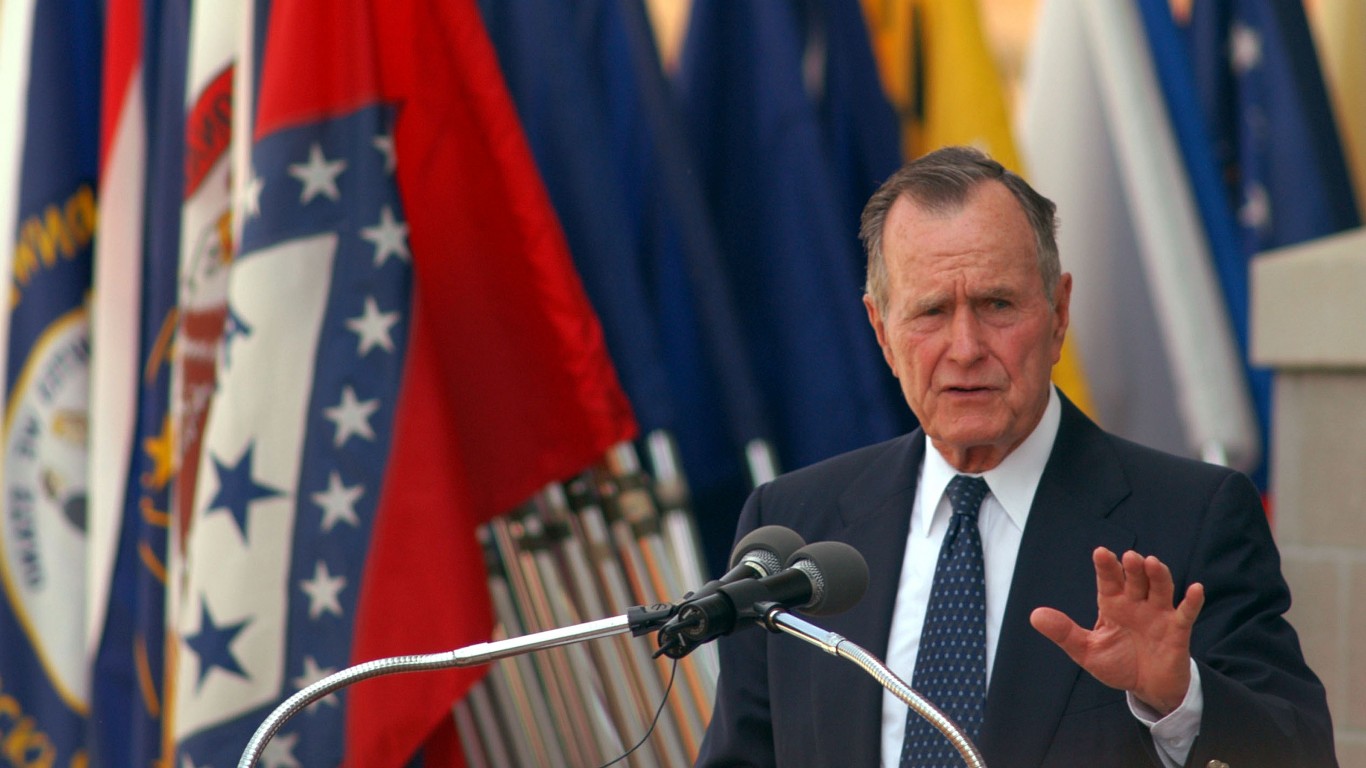
George H.W. Bush
> When he died: Nov. 30, 2018
> Age: 94
> Cause of death: Parkinson’s disease
As early as 1991, Bush was diagnosed with a thyroid condition called Graves’ disease, and he later developed a form of Parkinson’s disease that — after several hospitalizations following the death of his wife, Barbara — eventually claimed his life. His last words, on speakerphone with his son George W. Bush, the future president, were “I love you, too.”
Take This Retirement Quiz To Get Matched With An Advisor Now (Sponsored)
Are you ready for retirement? Planning for retirement can be overwhelming, that’s why it could be a good idea to speak to a fiduciary financial advisor about your goals today.
Start by taking this retirement quiz right here from SmartAsset that will match you with up to 3 financial advisors that serve your area and beyond in 5 minutes. Smart Asset is now matching over 50,000 people a month.
Click here now to get started.
Thank you for reading! Have some feedback for us?
Contact the 24/7 Wall St. editorial team.
 24/7 Wall St.
24/7 Wall St.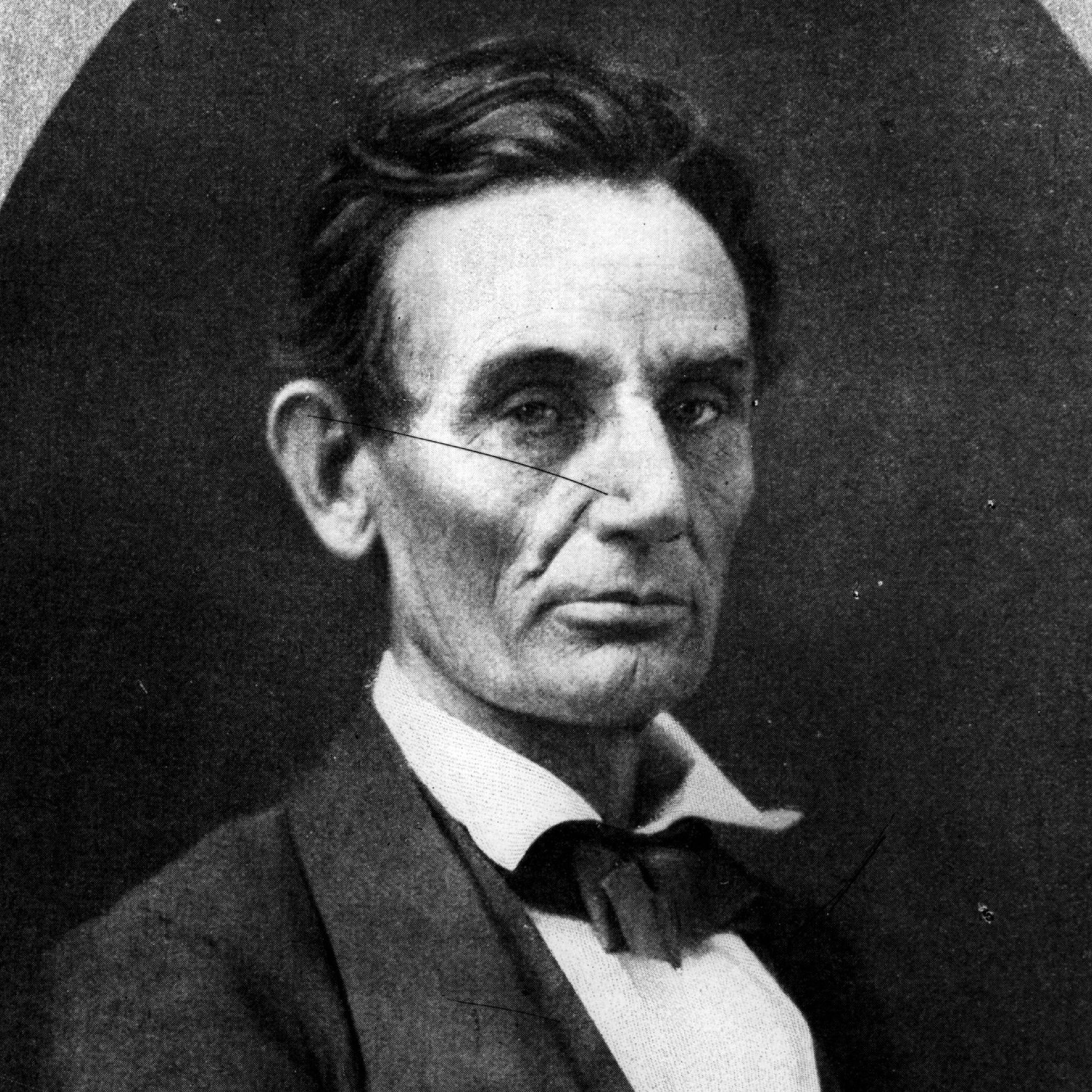 24/7 Wall St.
24/7 Wall St. 24/7 Wall St.
24/7 Wall St.